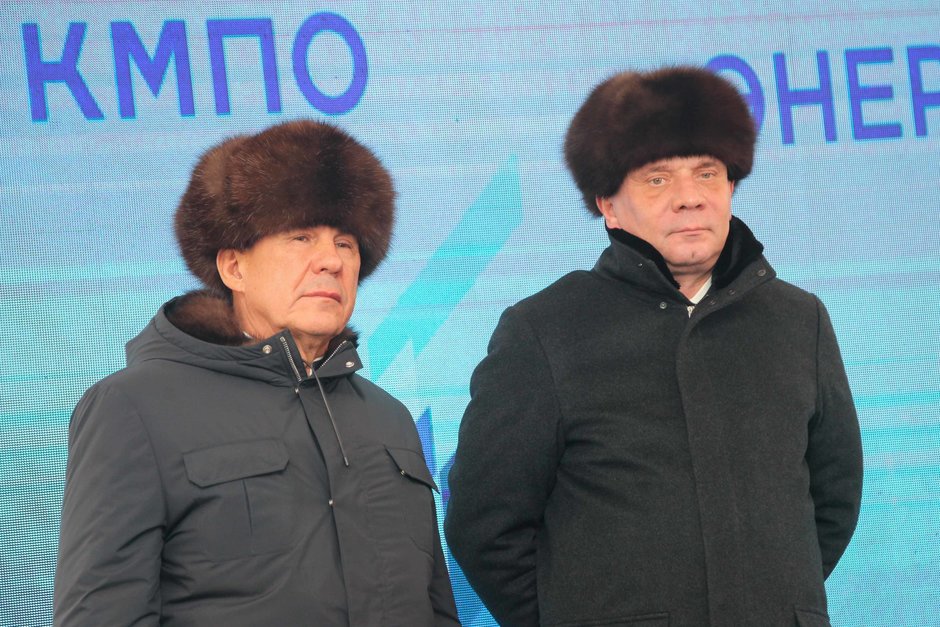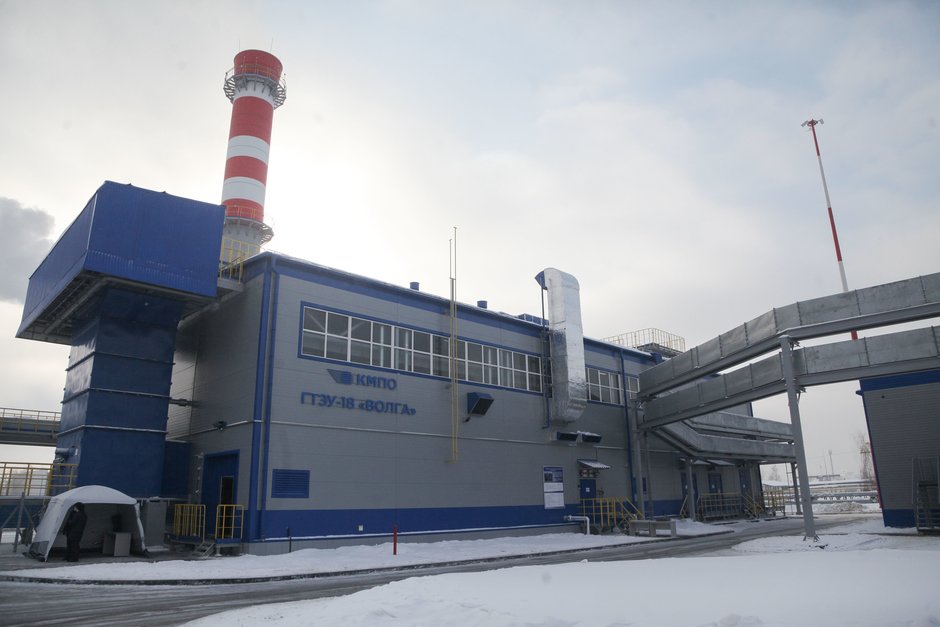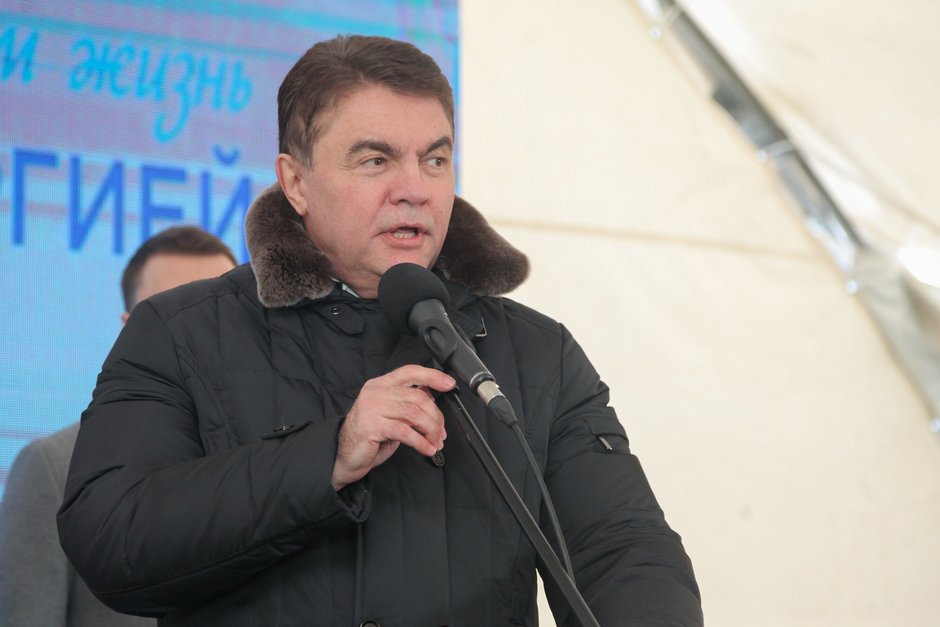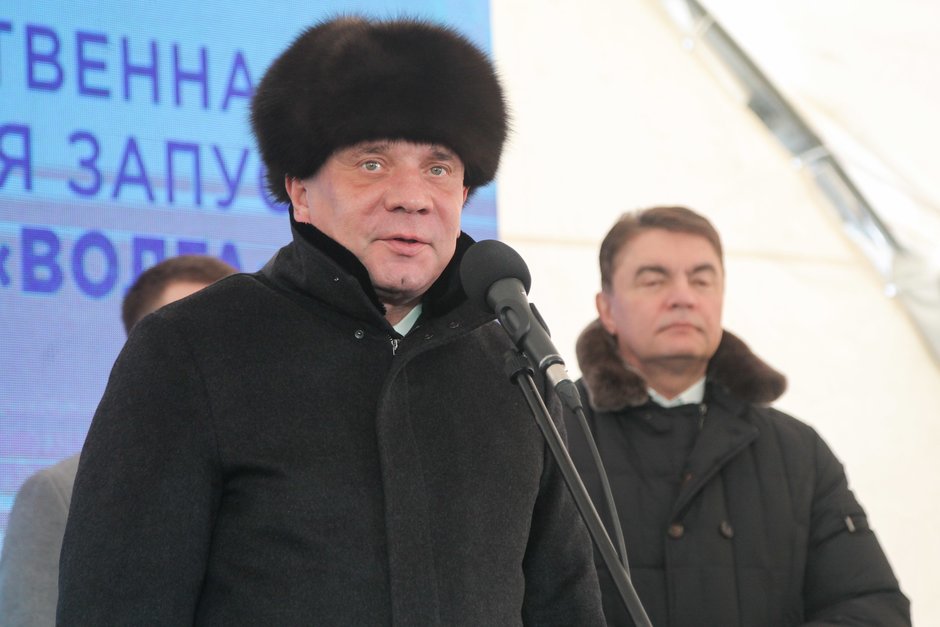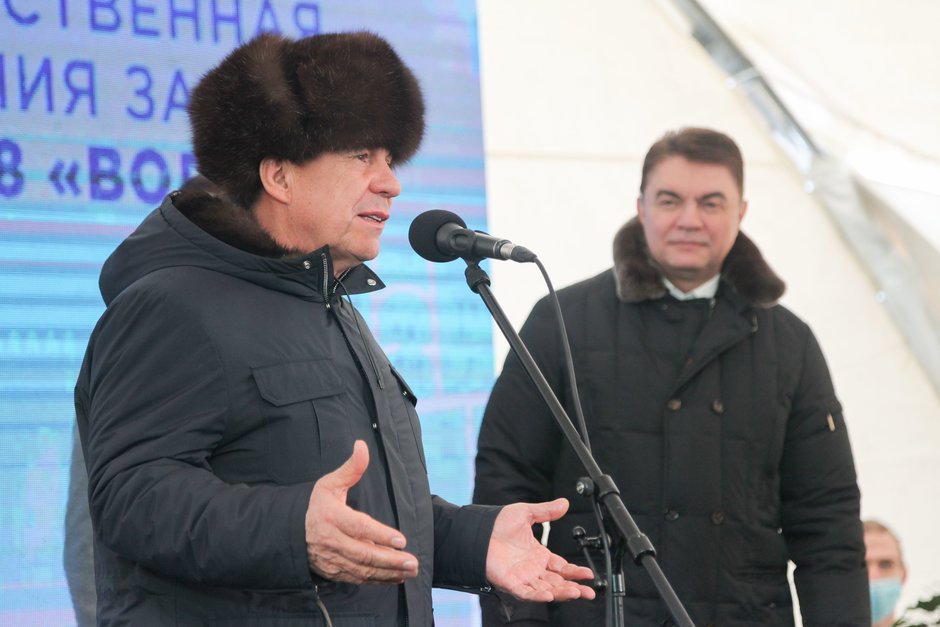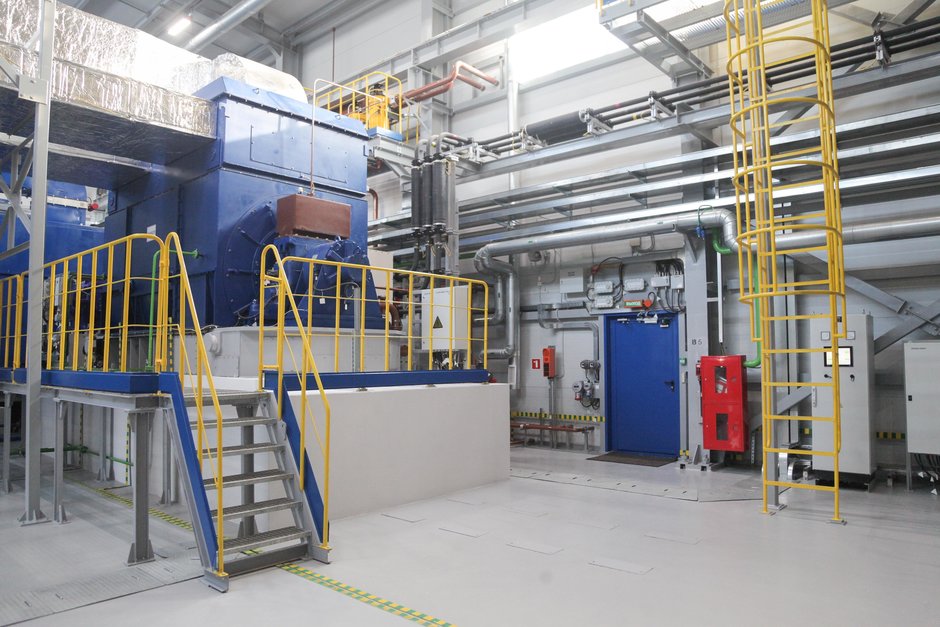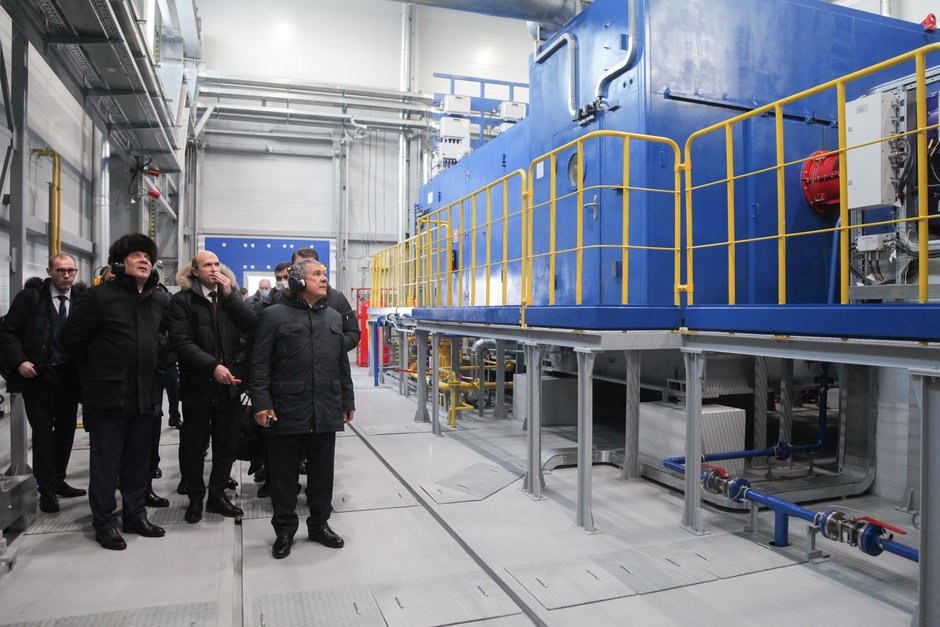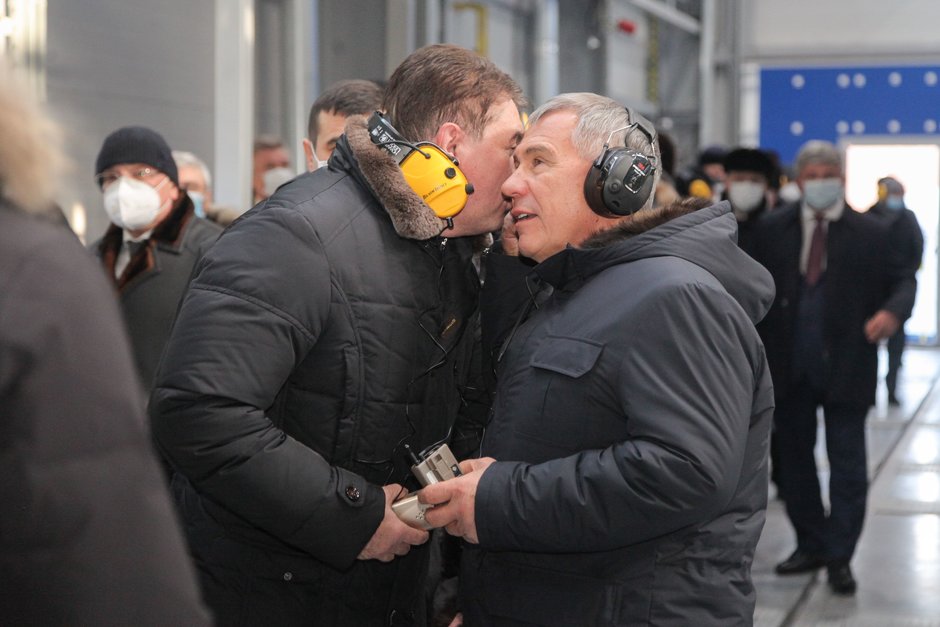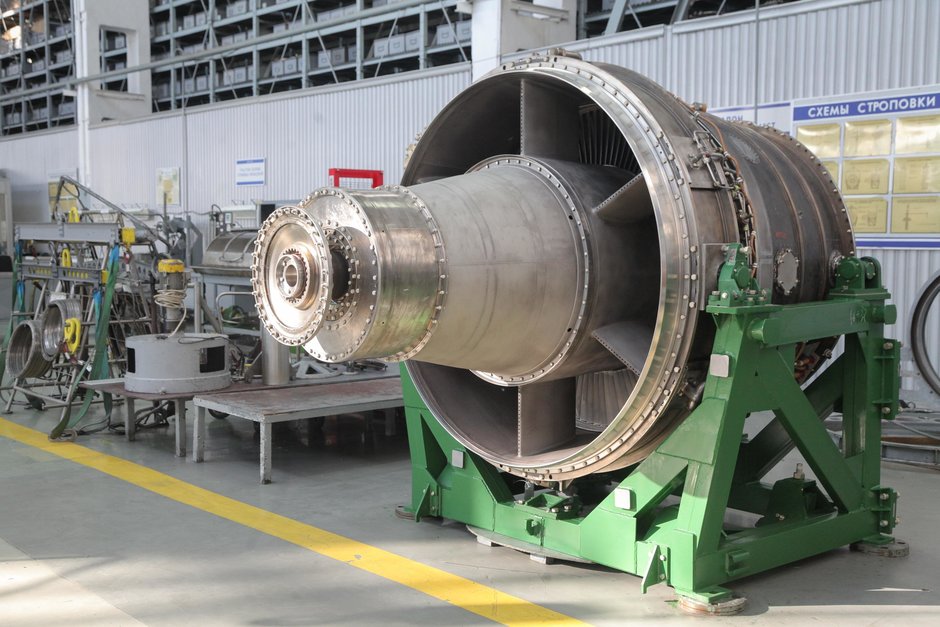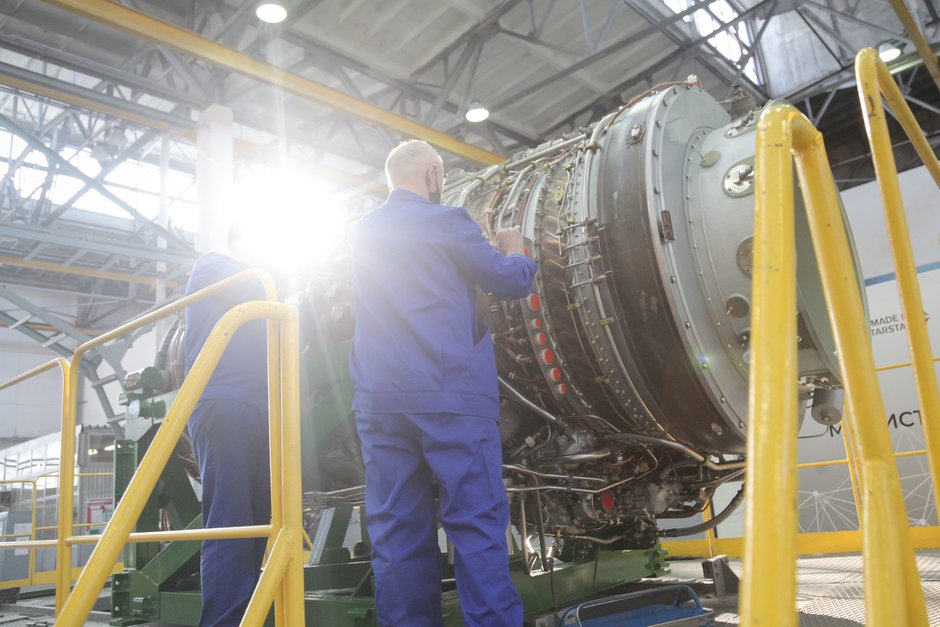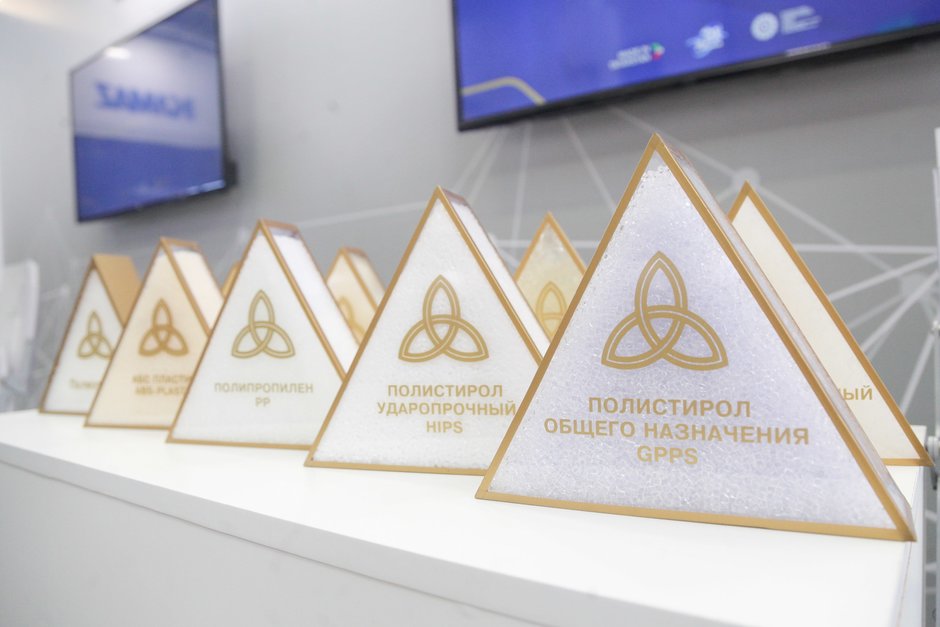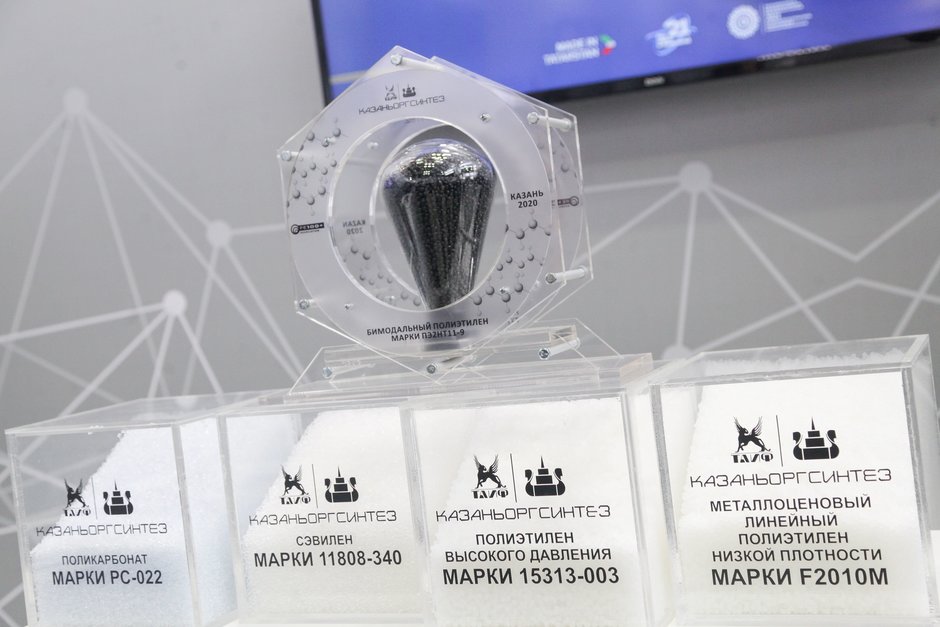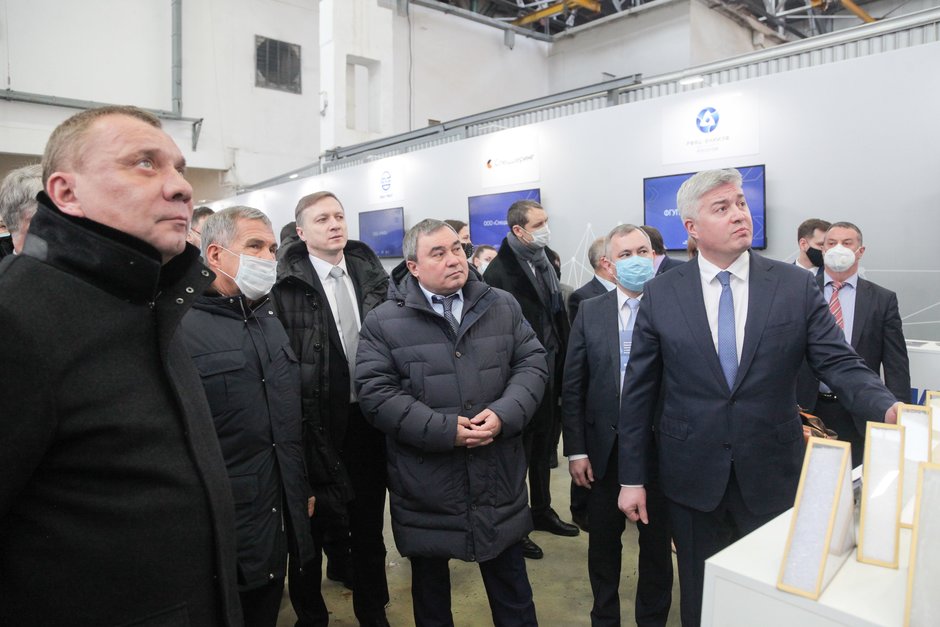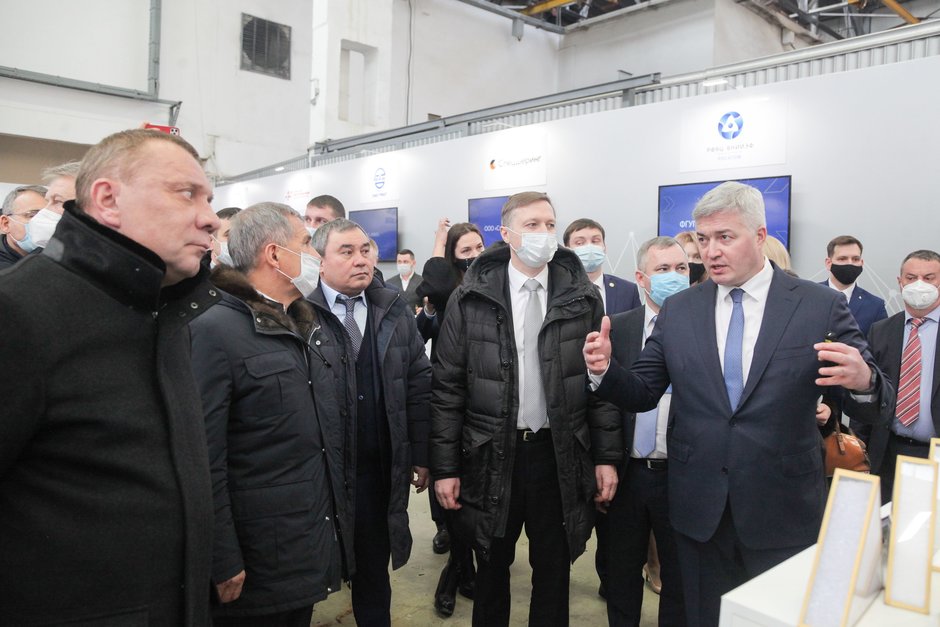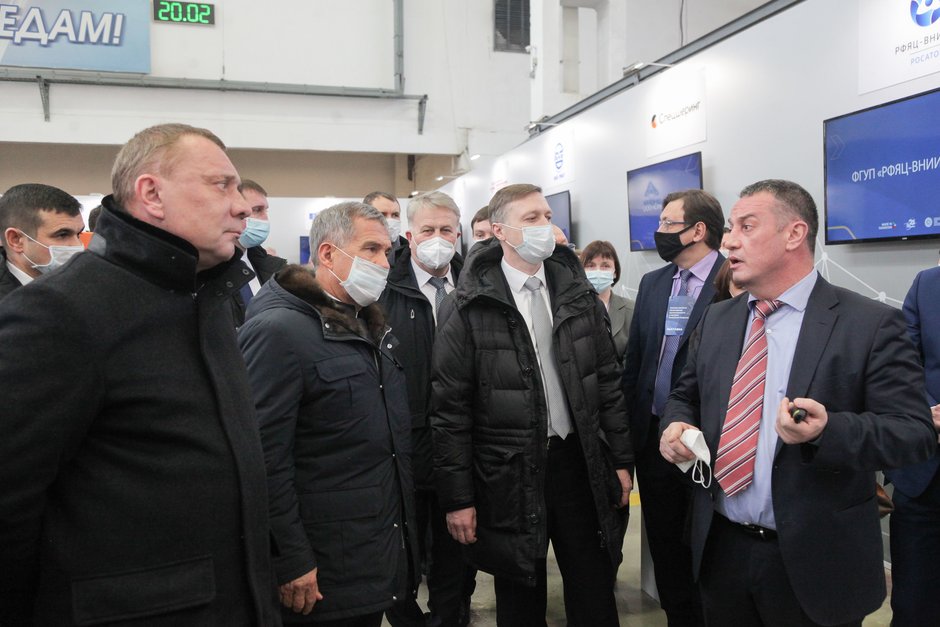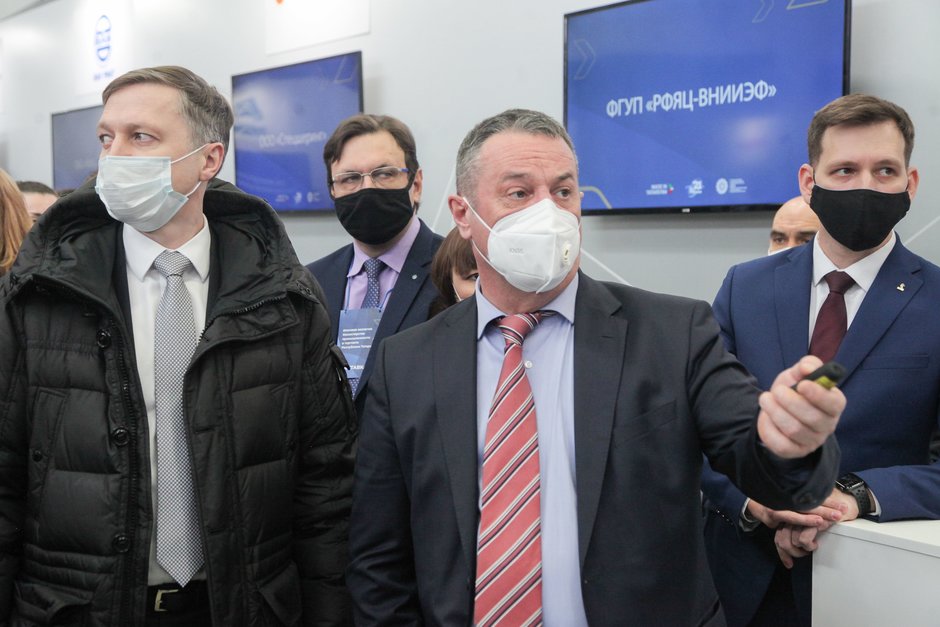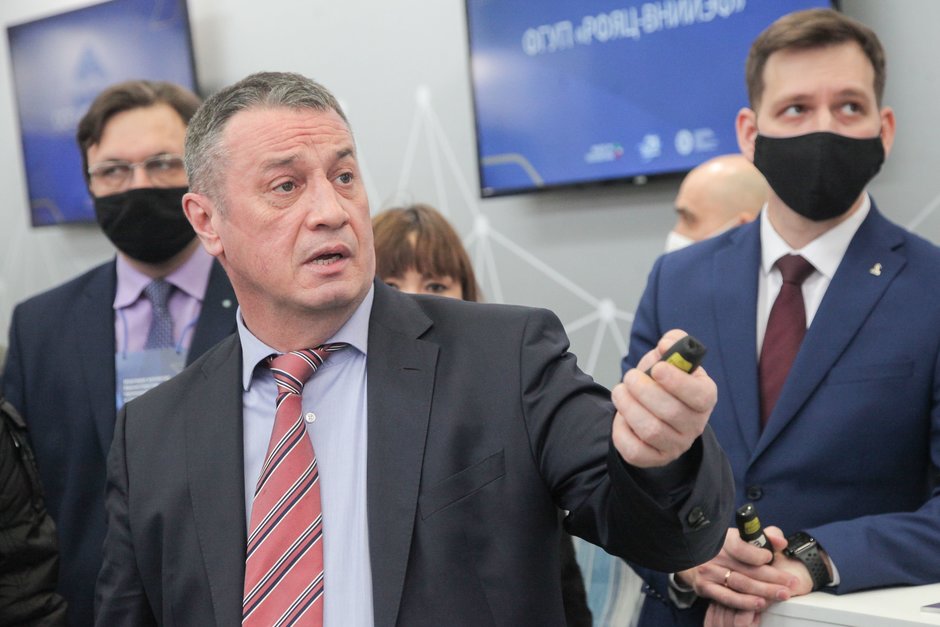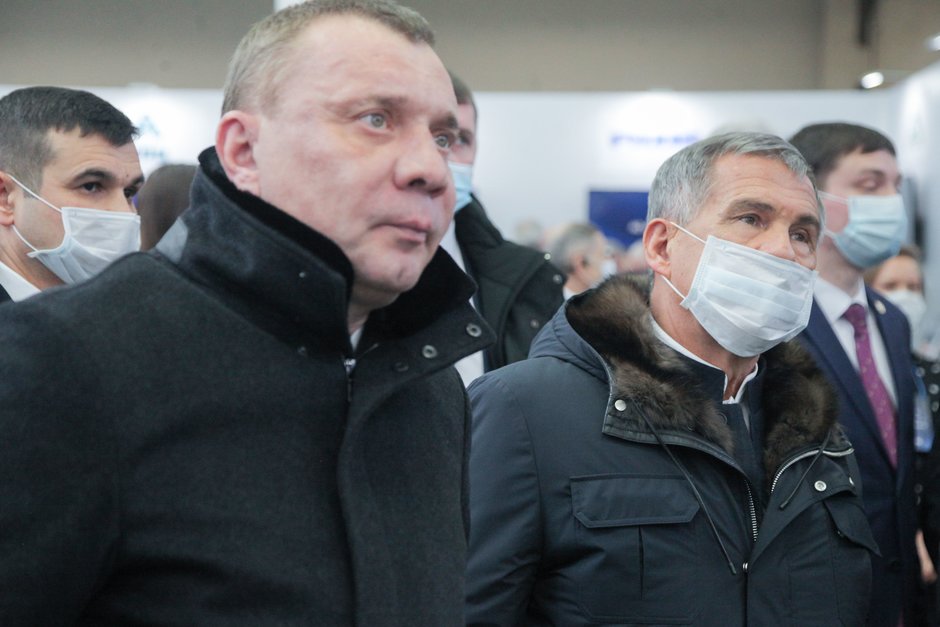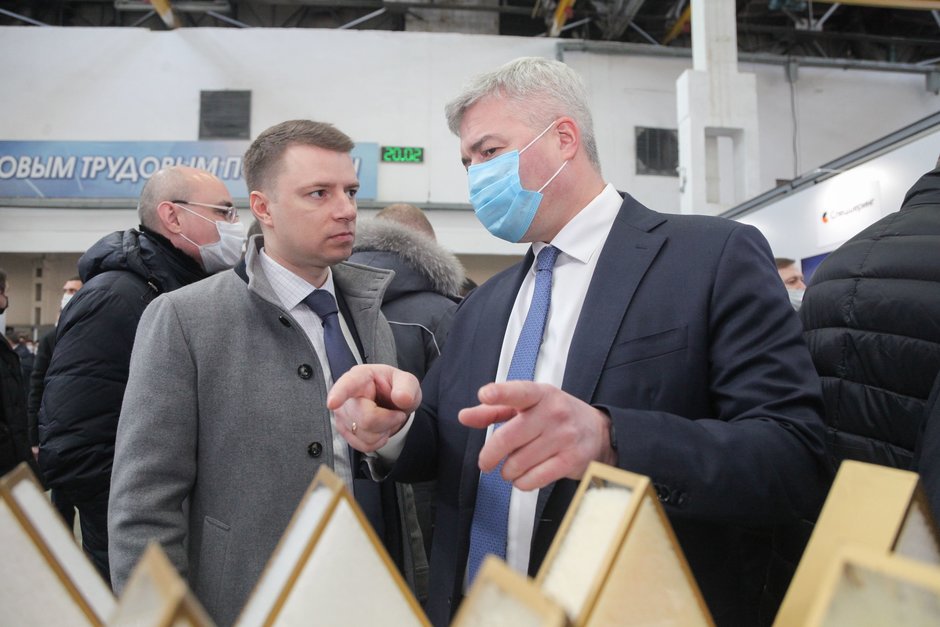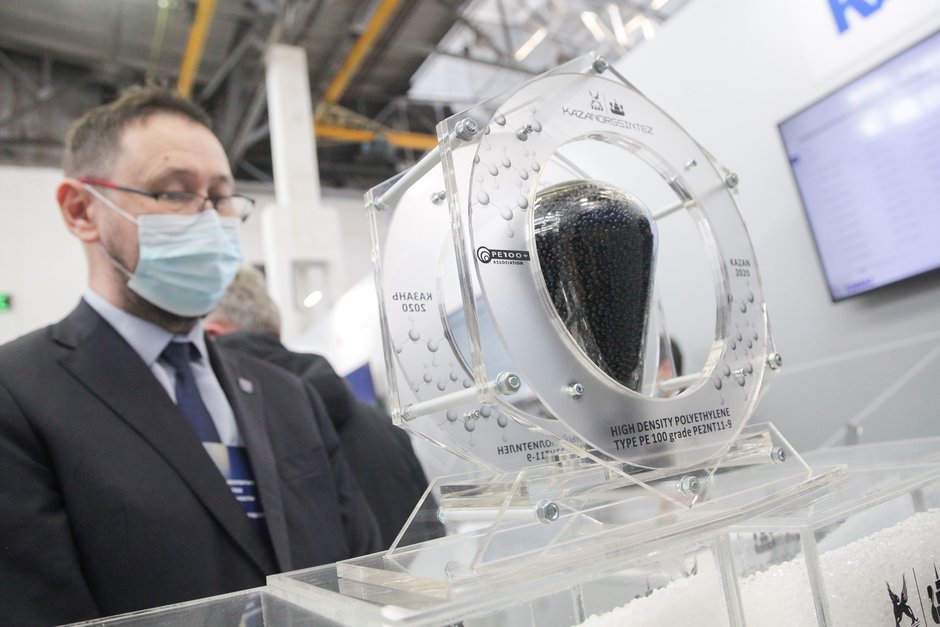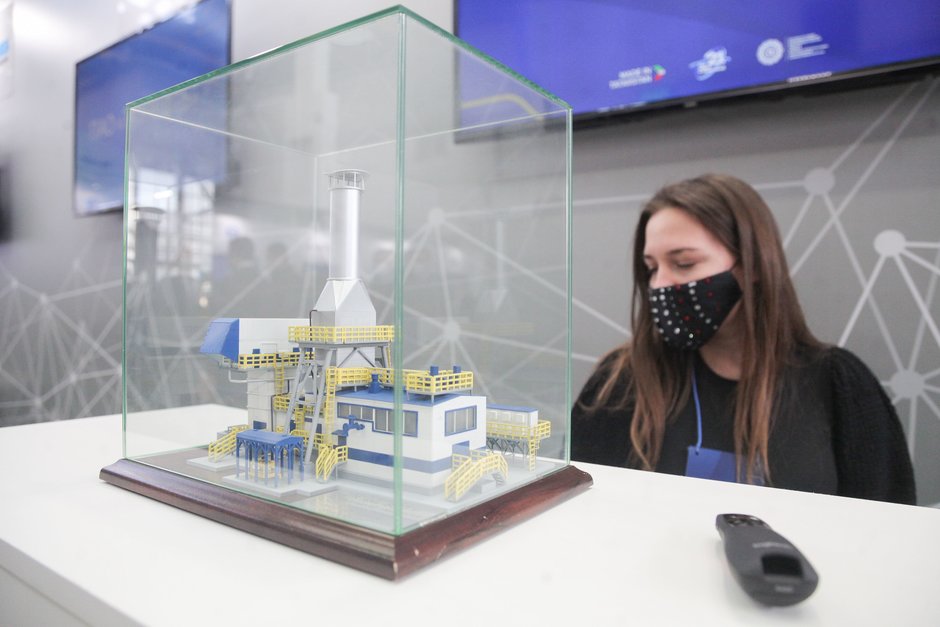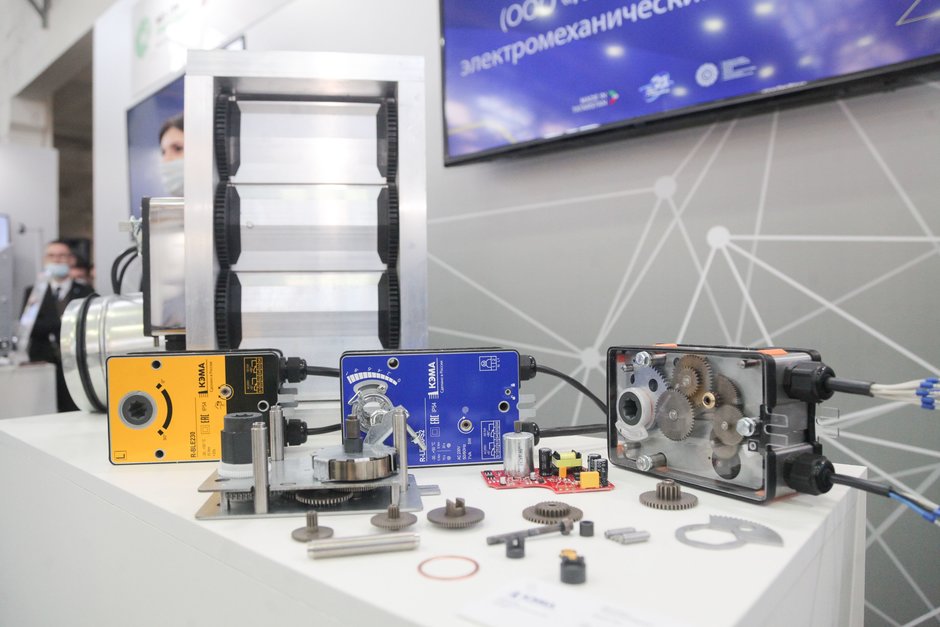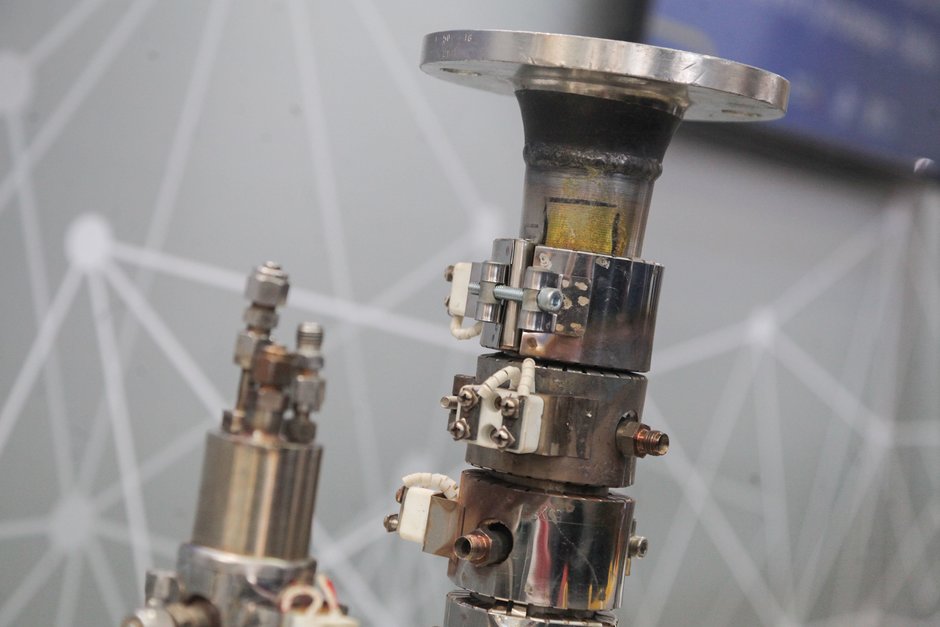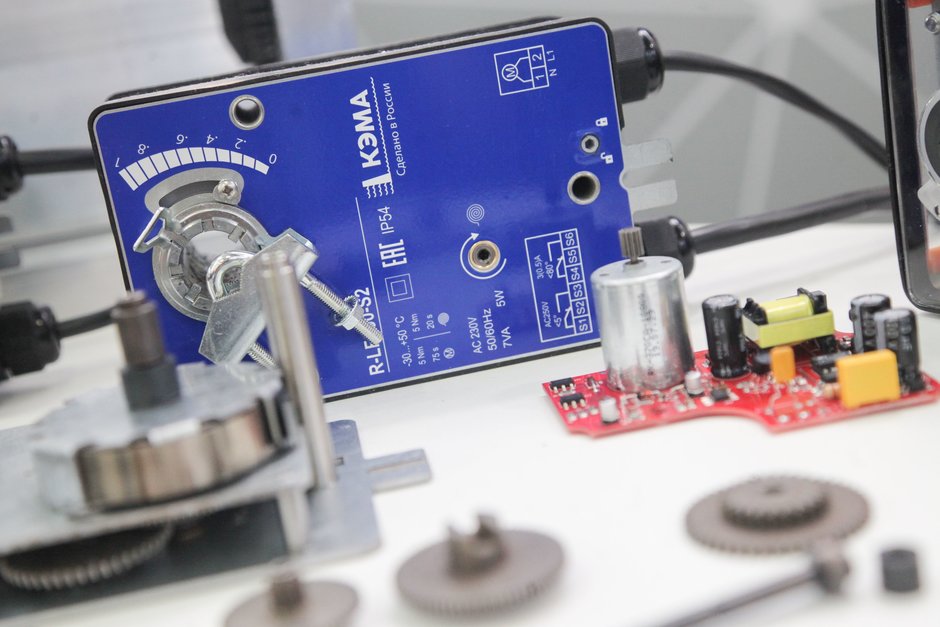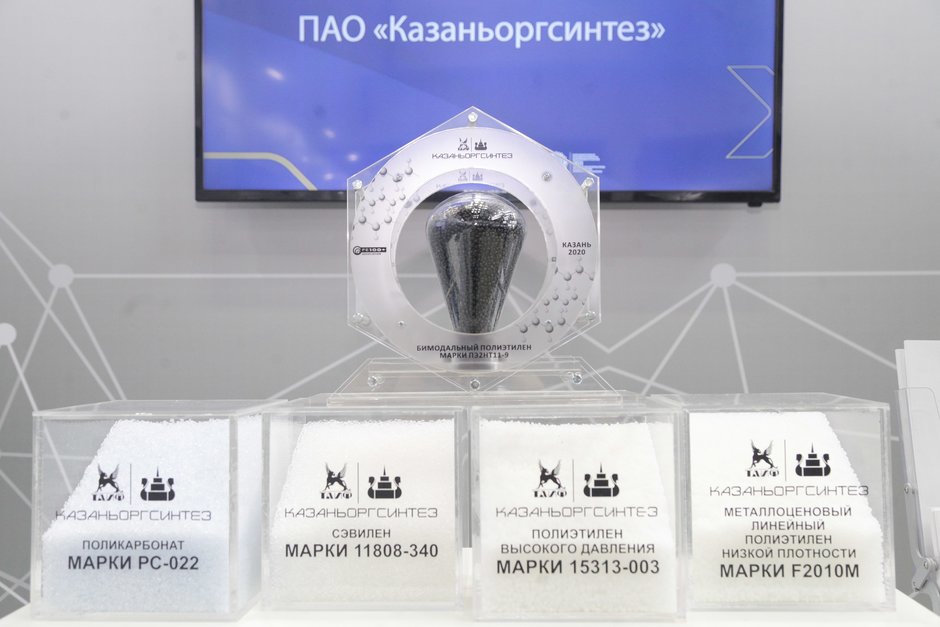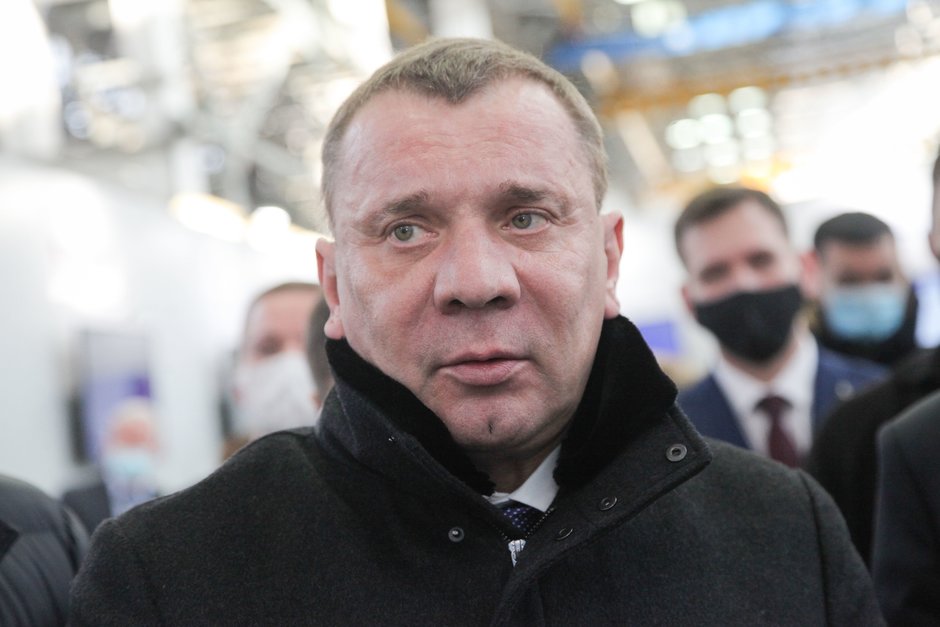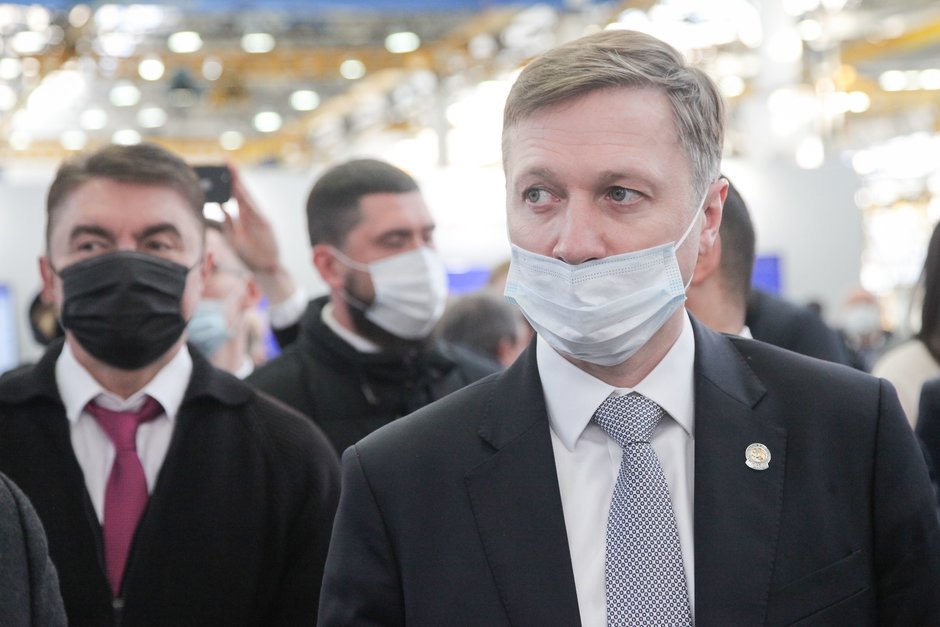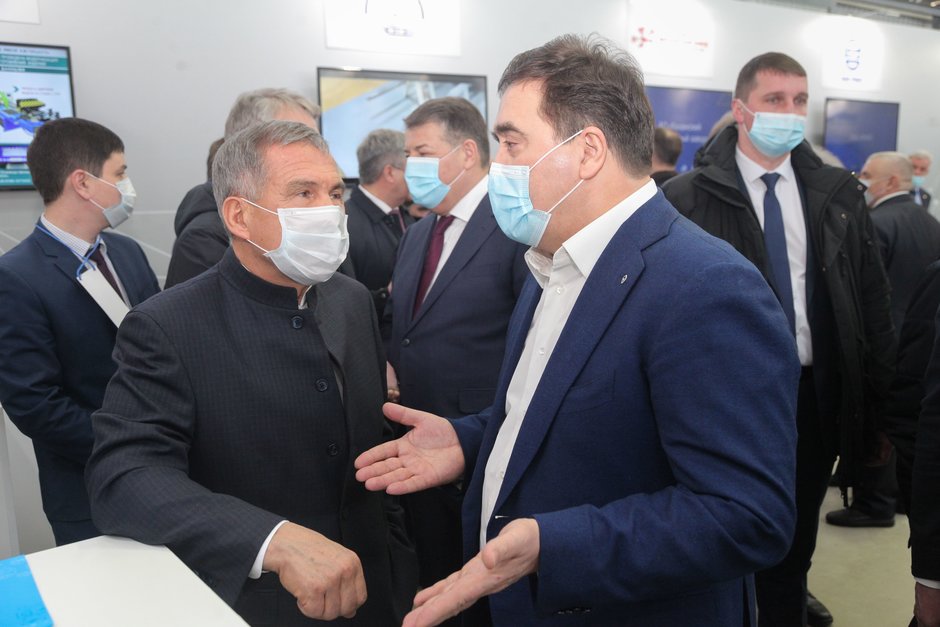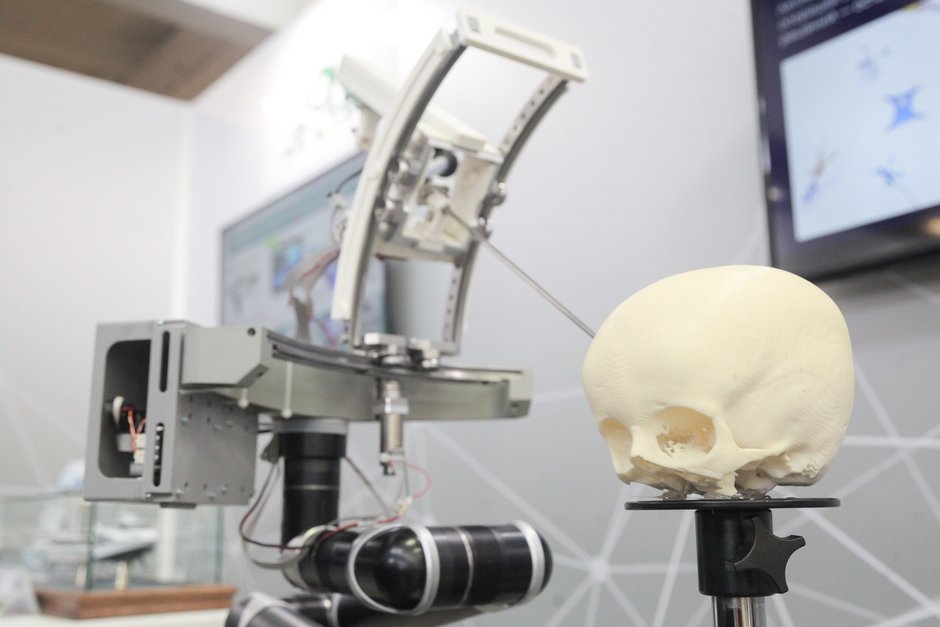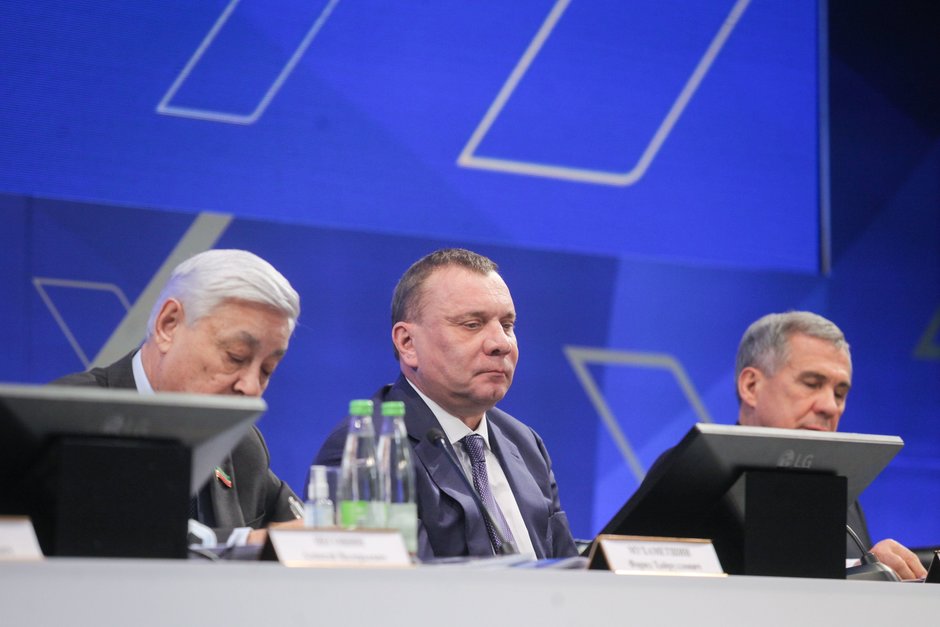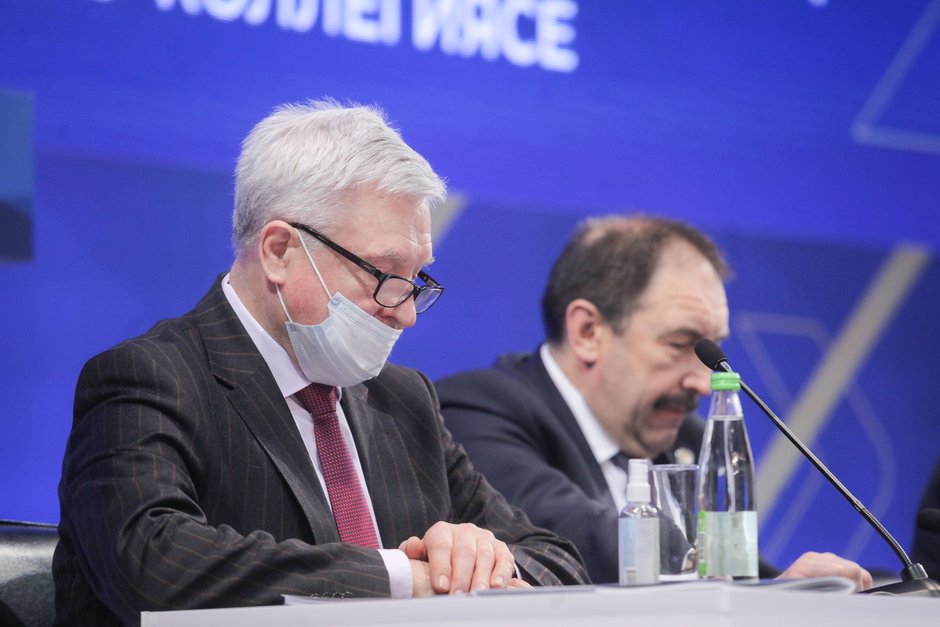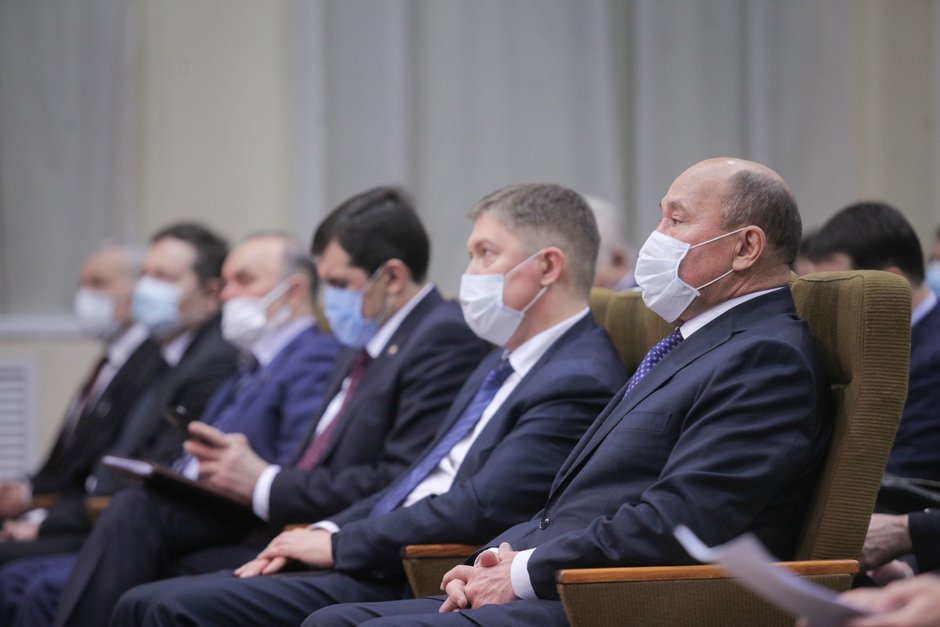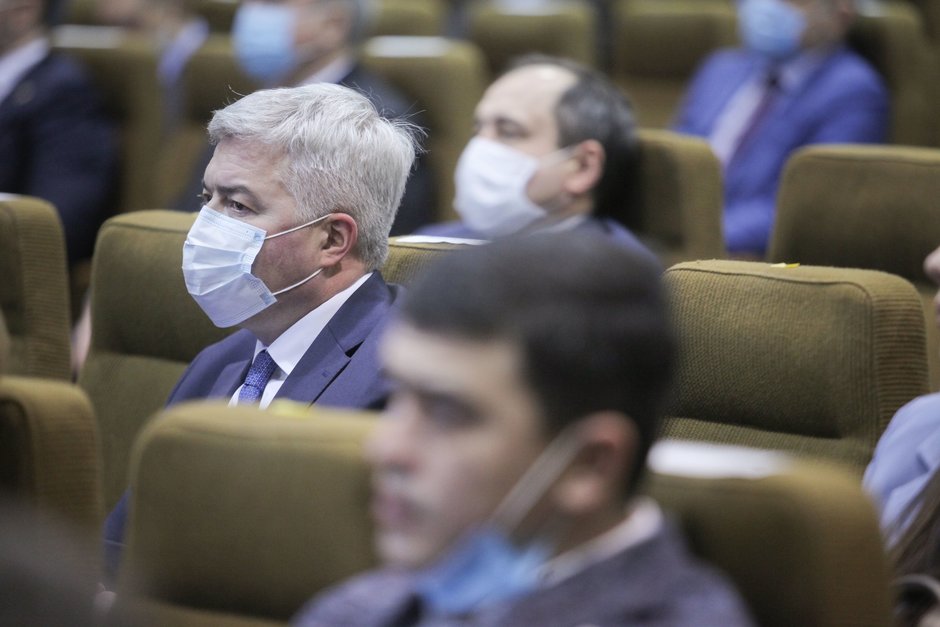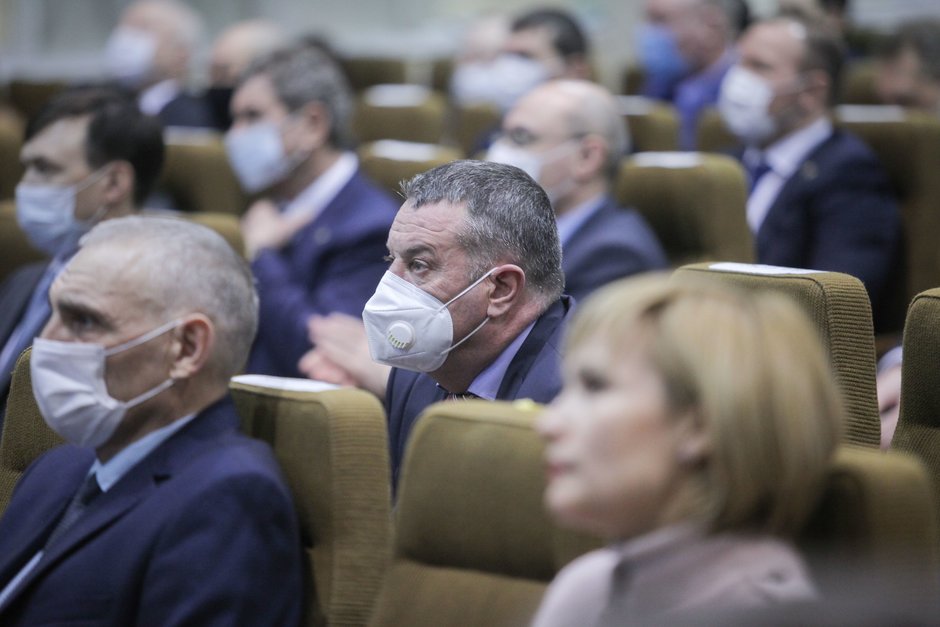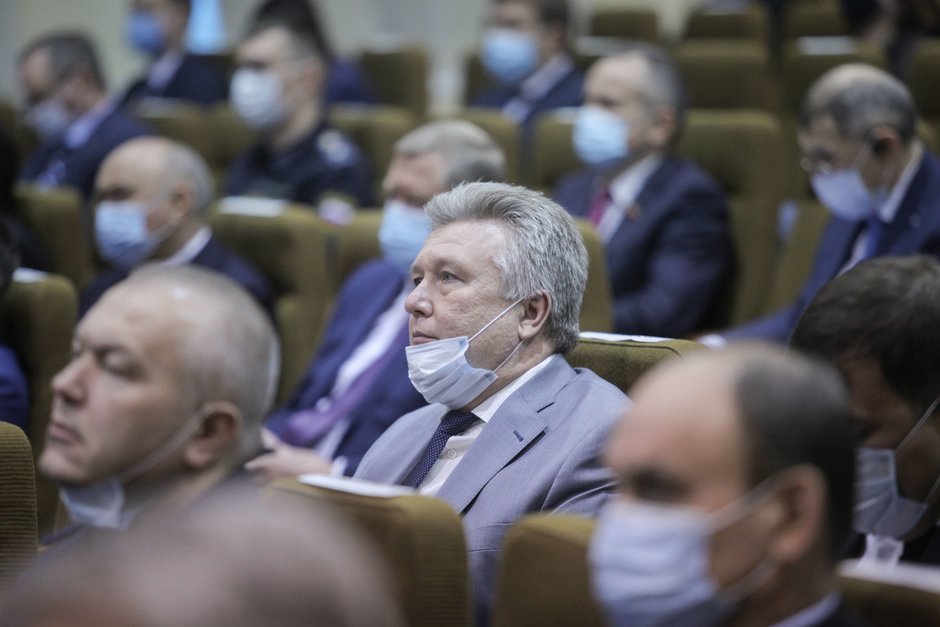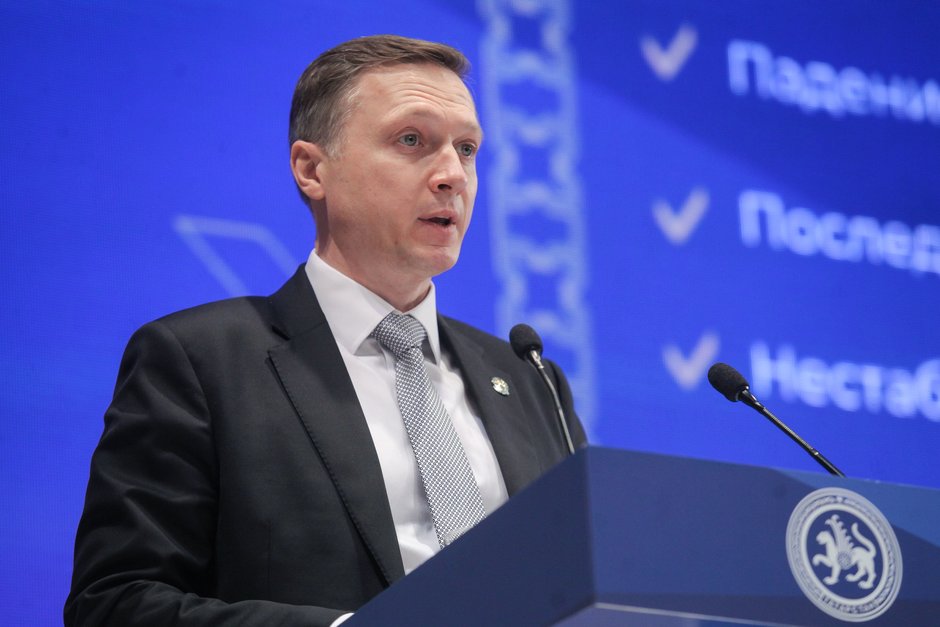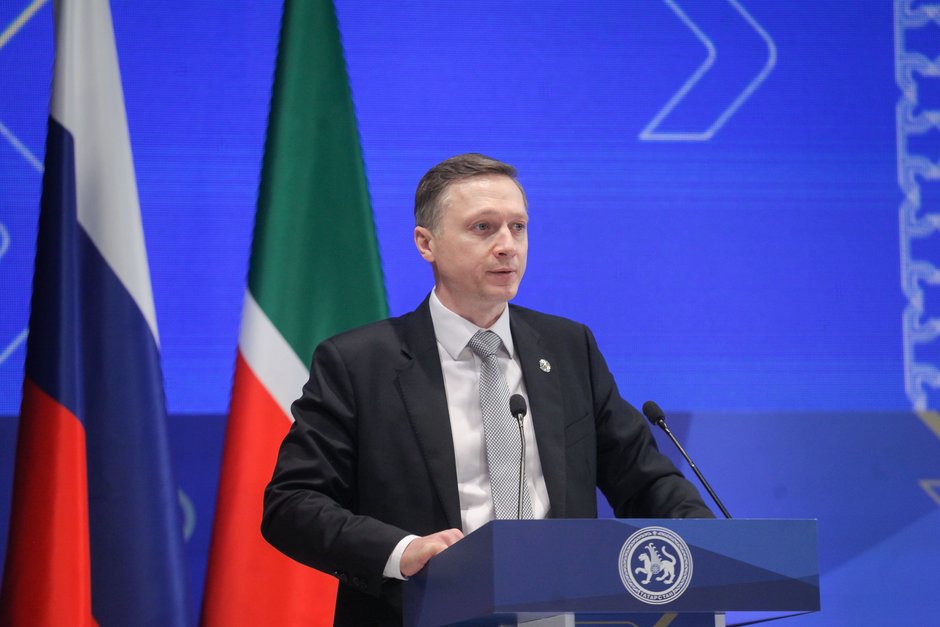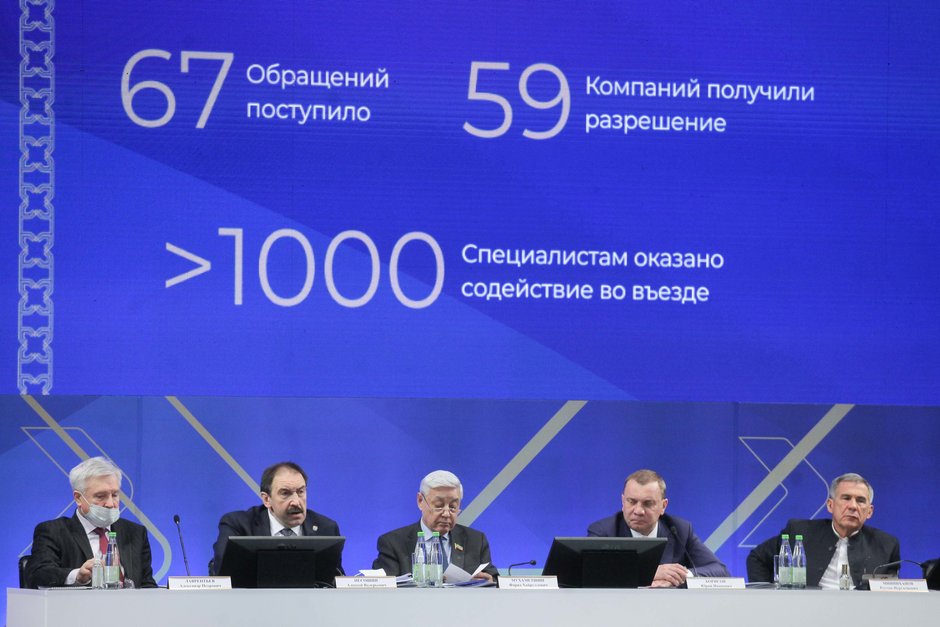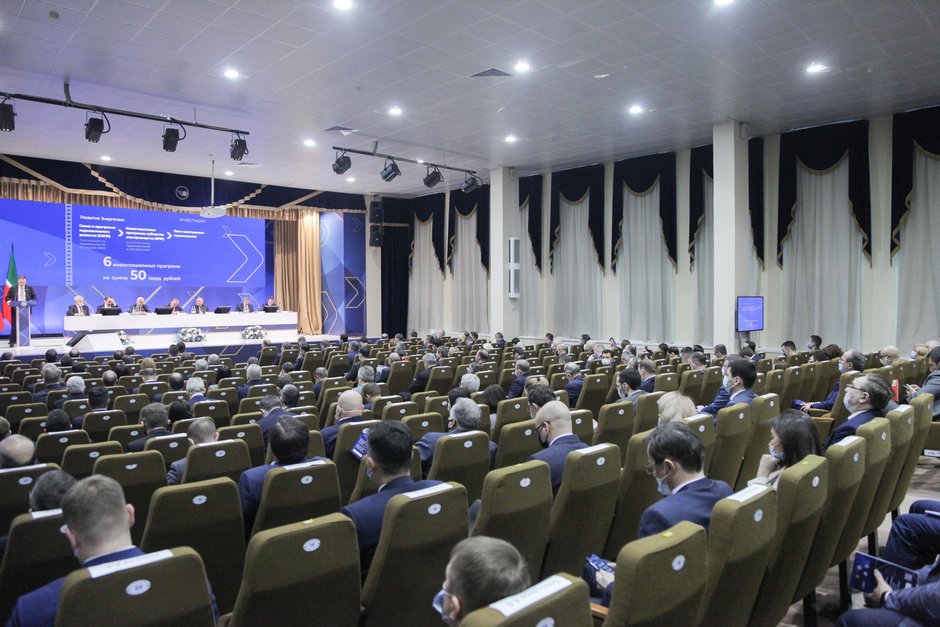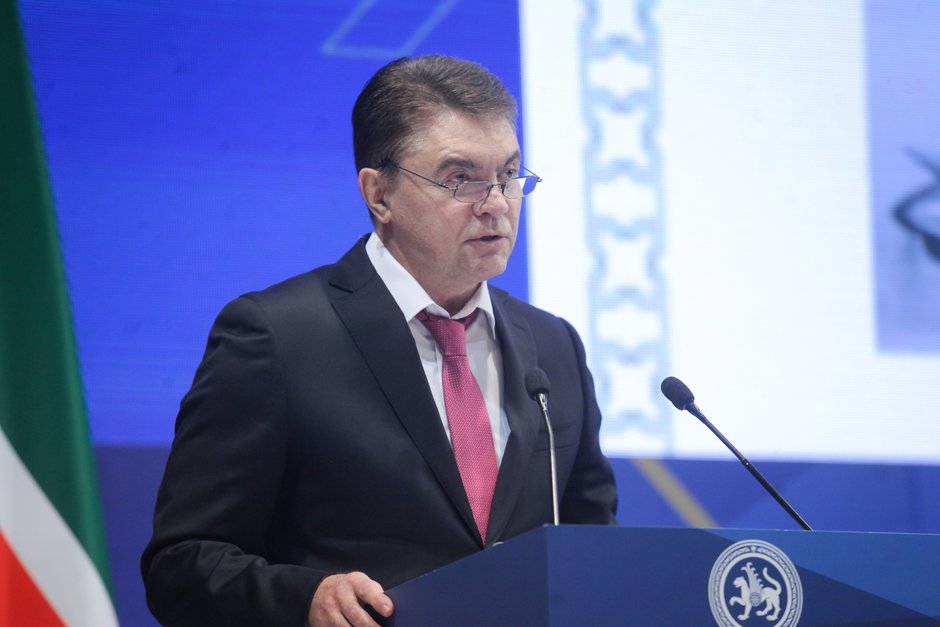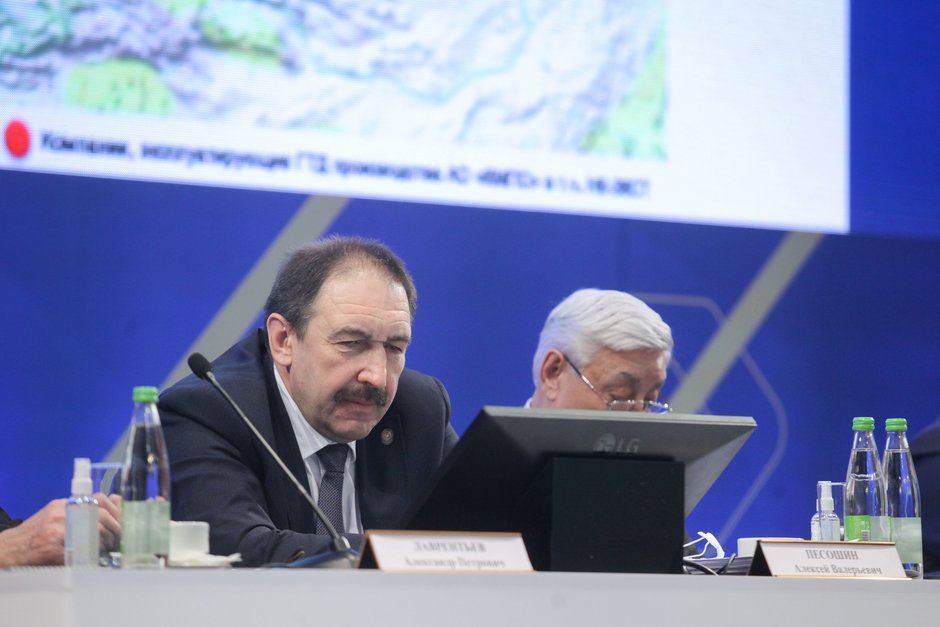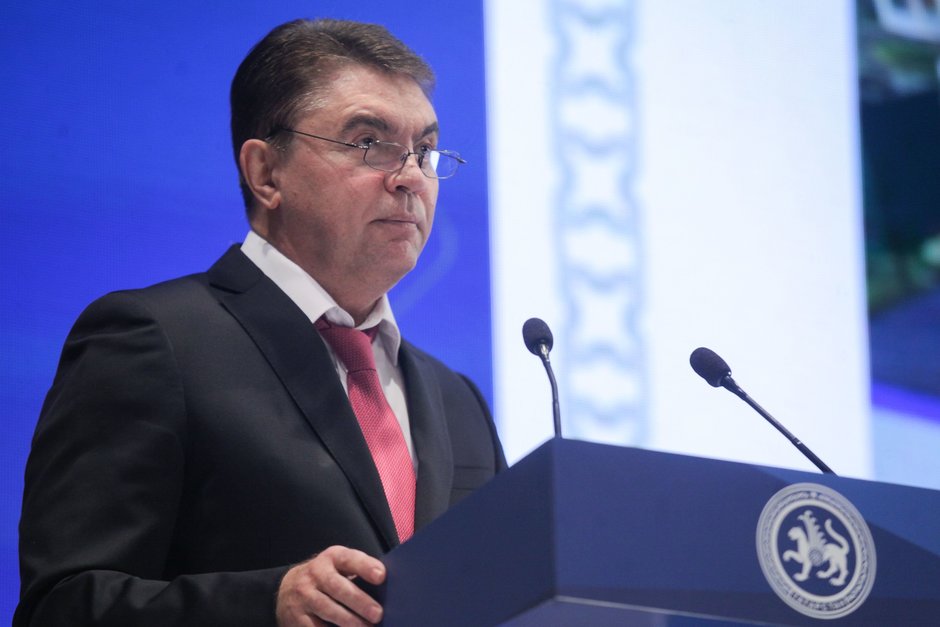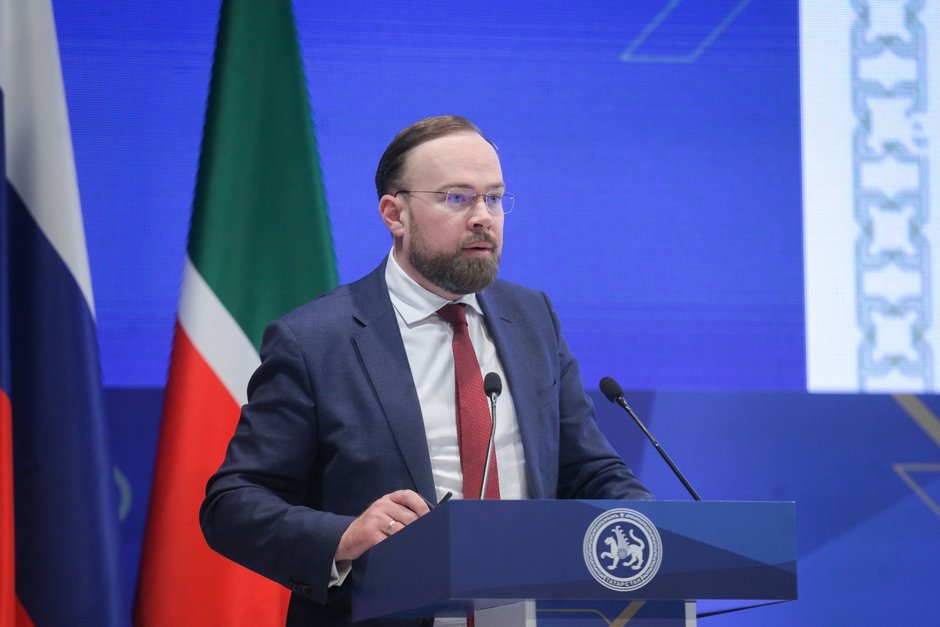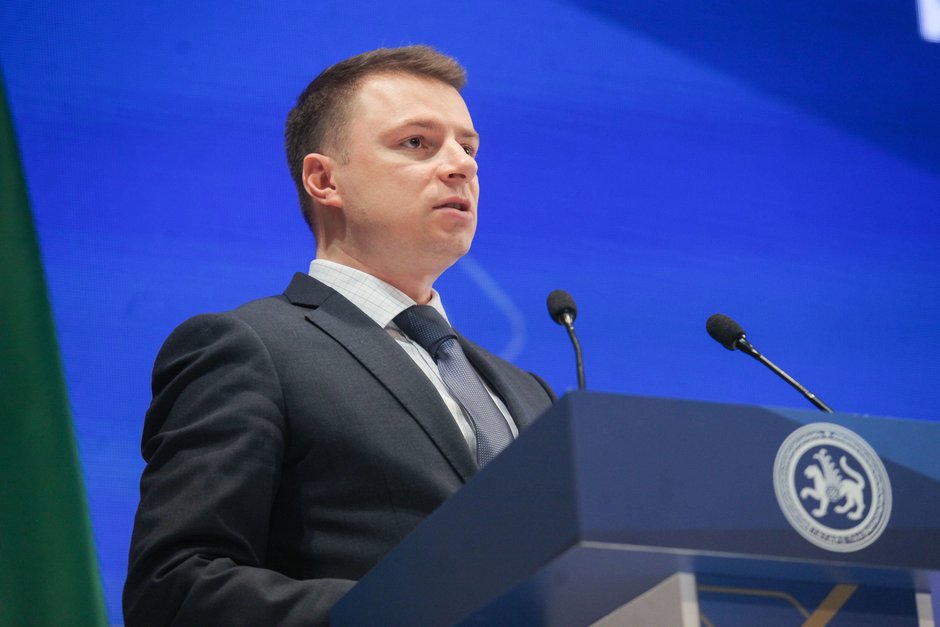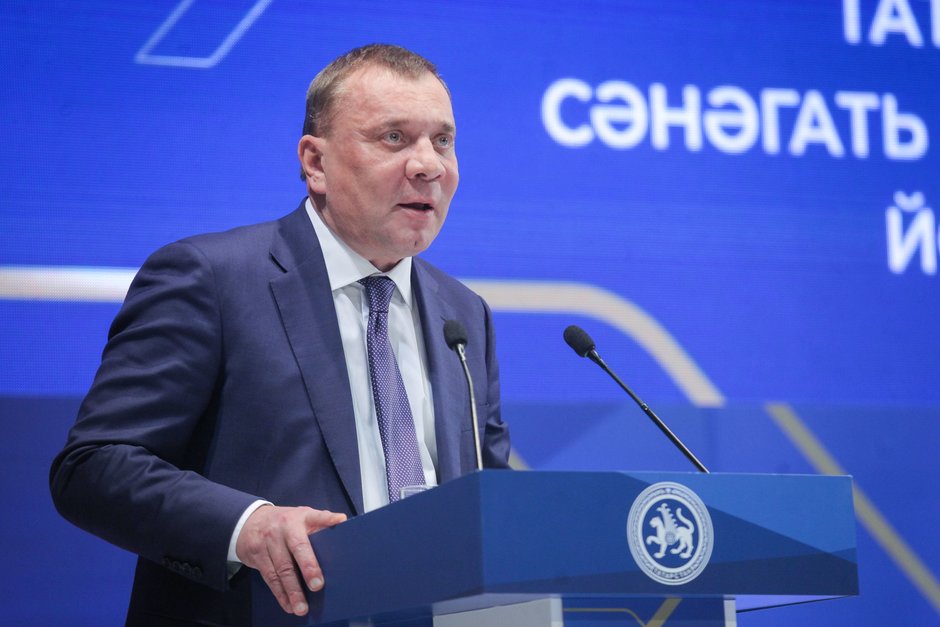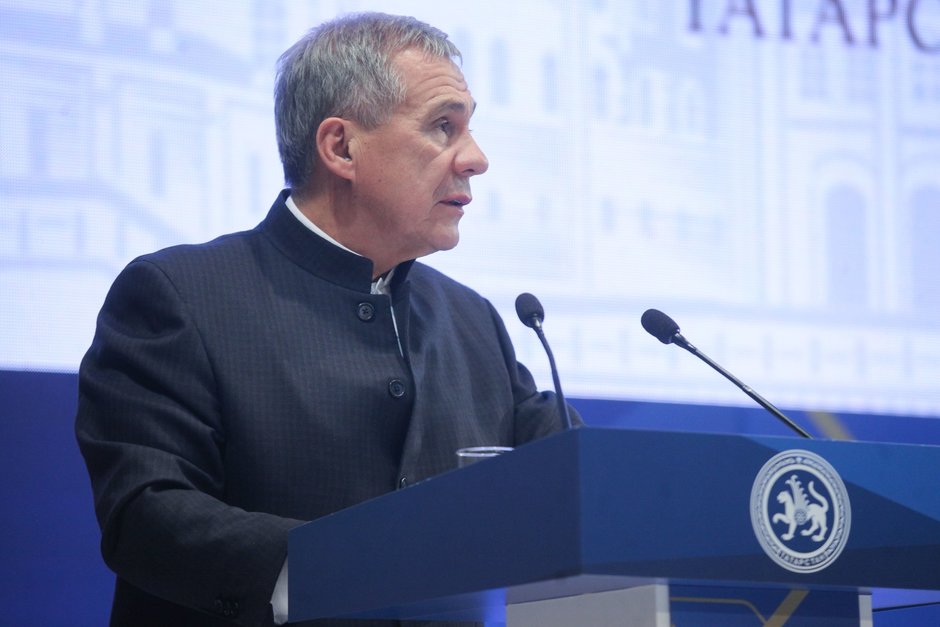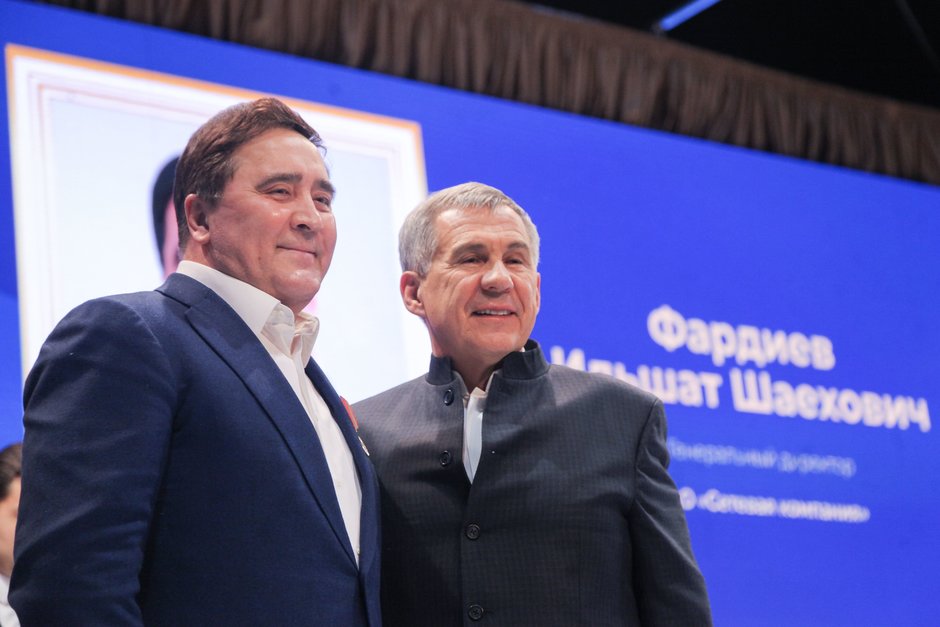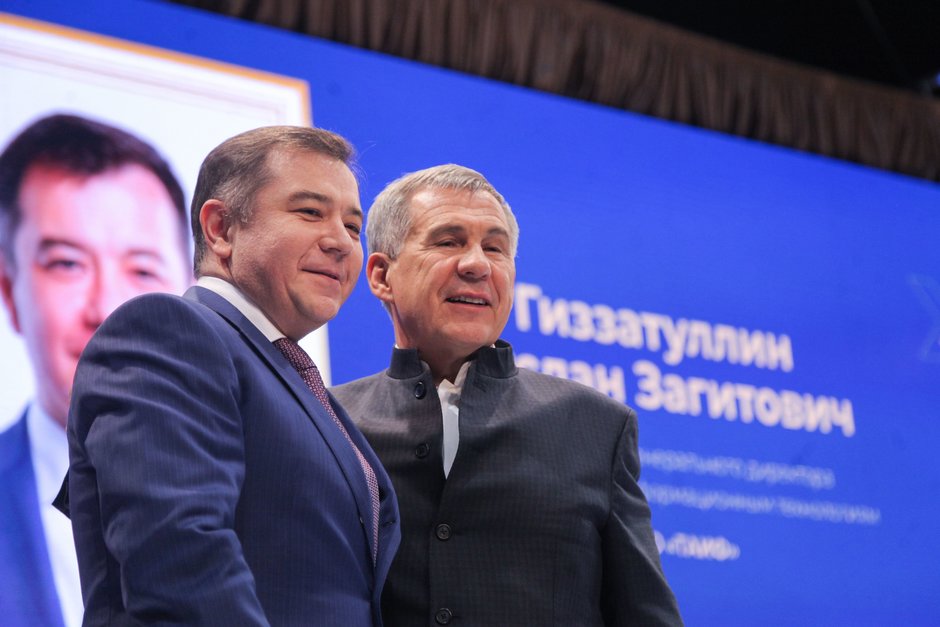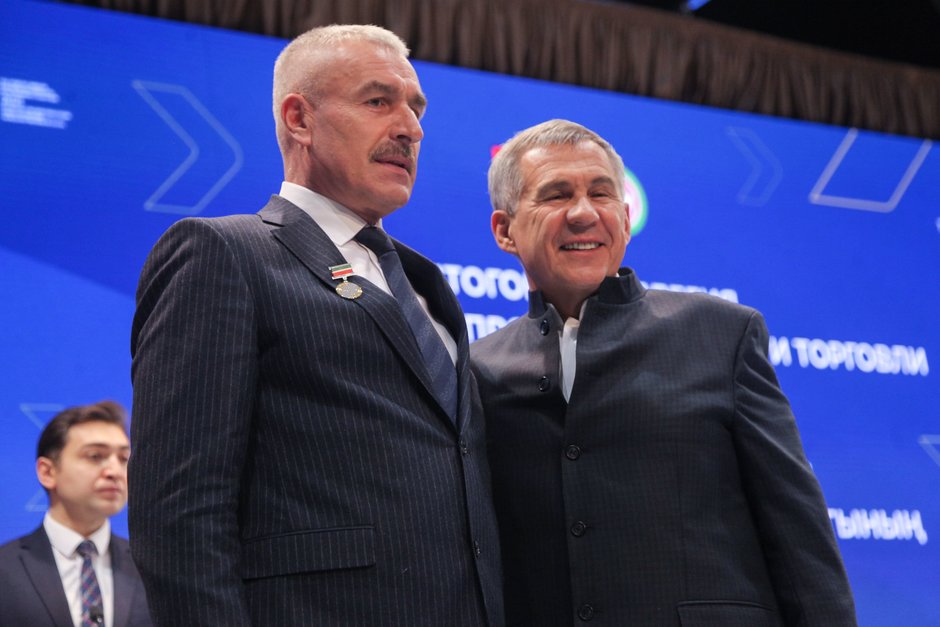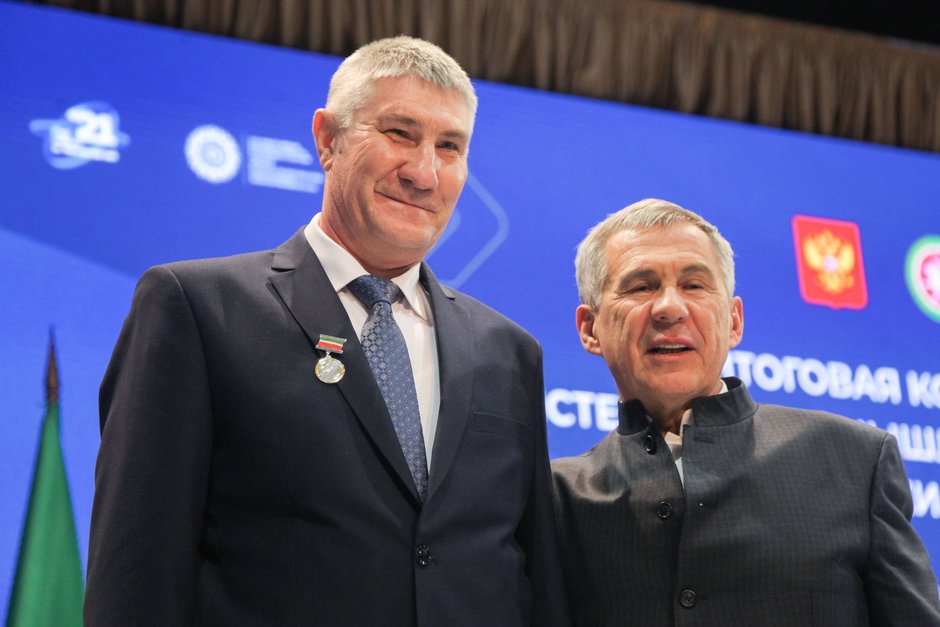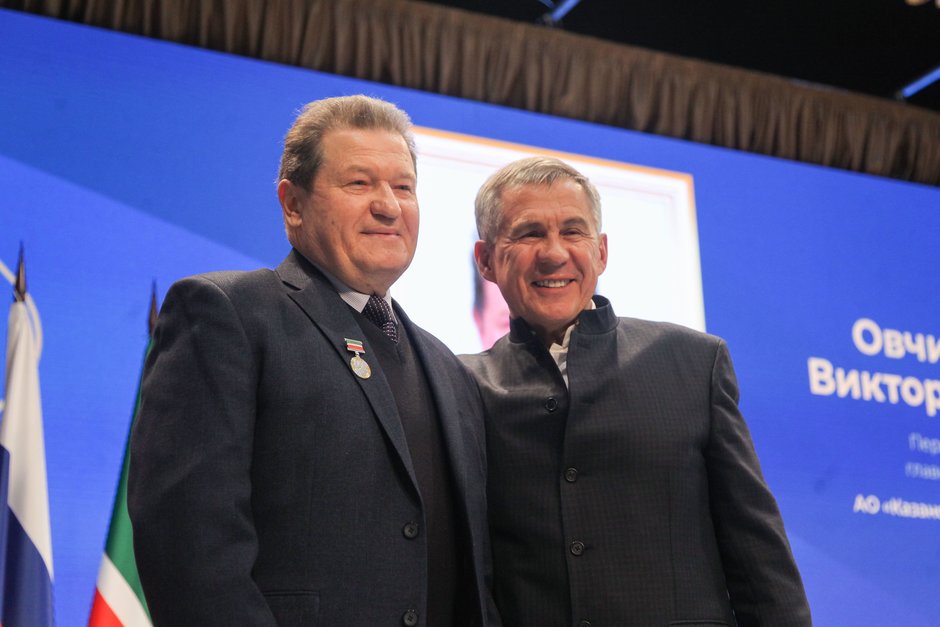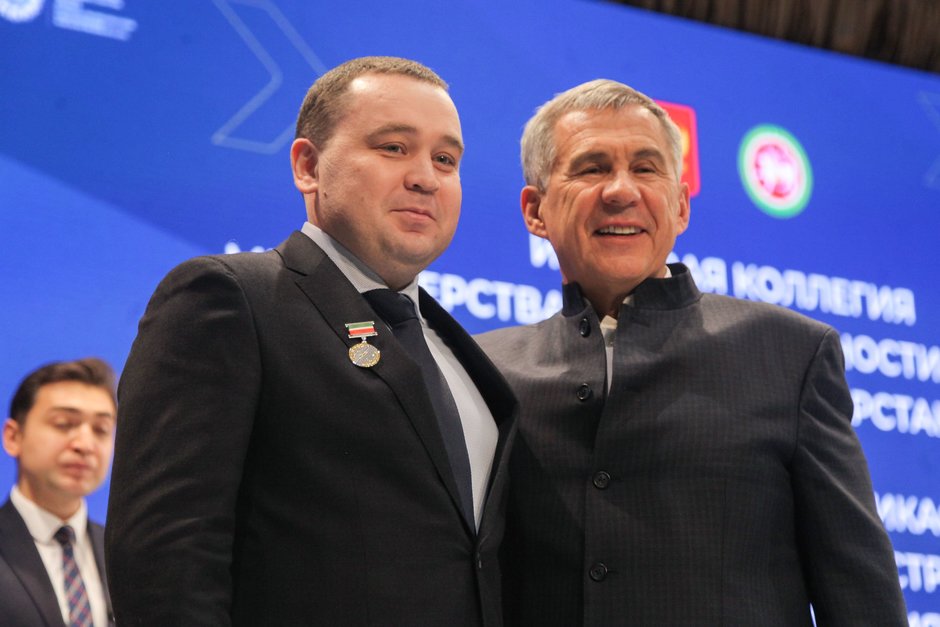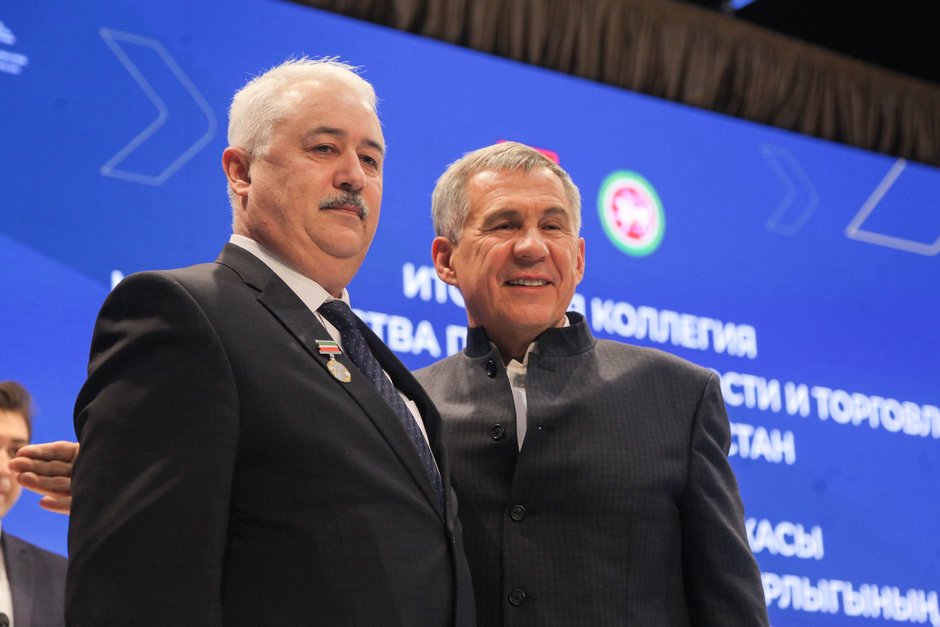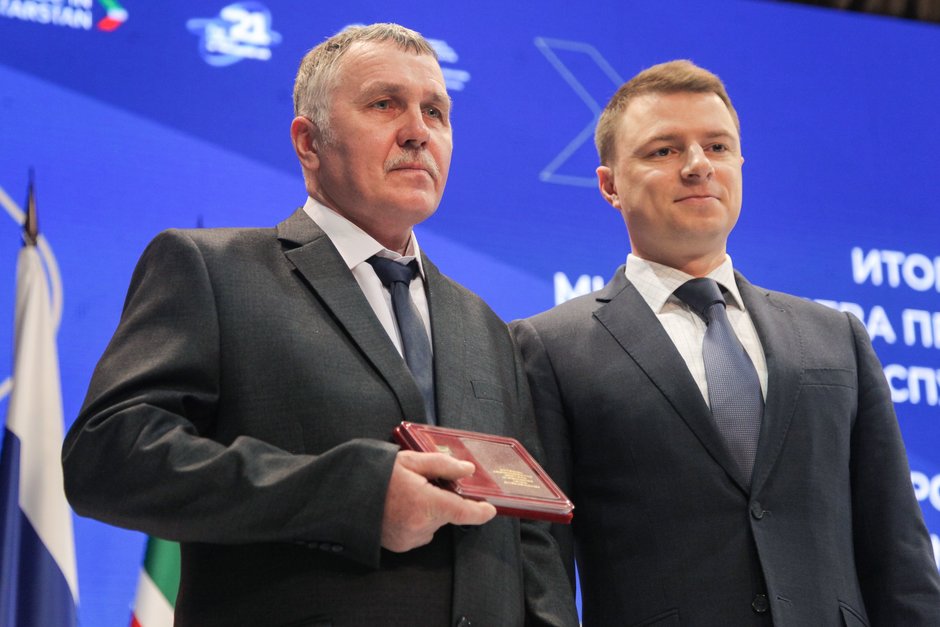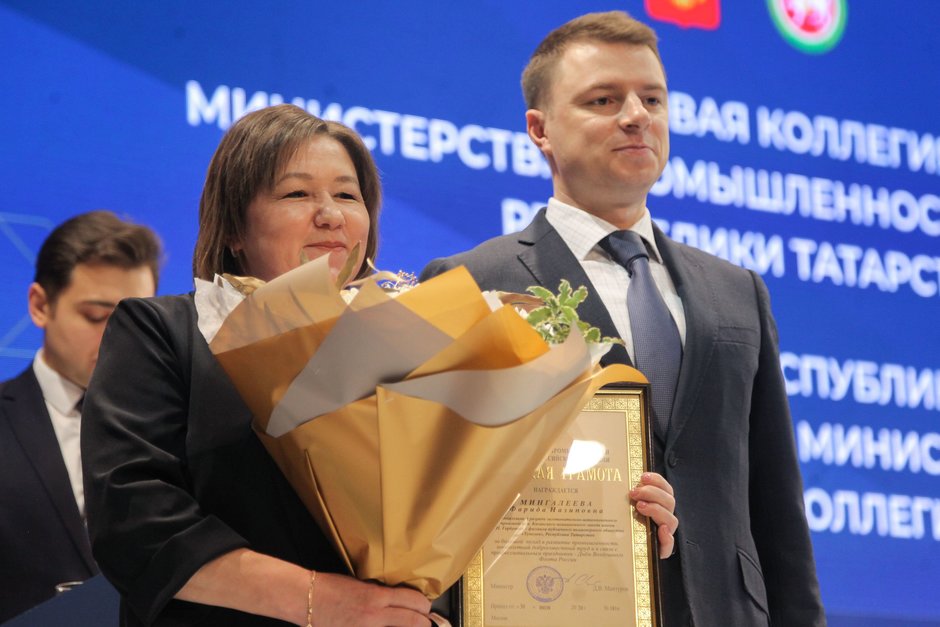Russia's Deputy Prime Minister Yury Borisov to industrialists: 'A 5% growth is still on the agenda'
Yury Borisov has asked Tatarstan industrialists to achieve a 5% growth for the second time. The president of Tatarstan assured that it will be easier to get up after a recession
Tatarstan industry slowed down the speed of movement: due to the pandemic, the production index fell by a significant 3,6% to the level of 2019, the officials of the industrial complex stated with restrained dignity at the board meeting of the ministry of industry and trade of Tatarstan on 20 February. Russian Deputy Prime Minister Yury Borisov, who attended the board meeting, admitted that the pandemic had crossed out last year's plans to grow by 5% but did not back down and repeated that this bar had not been removed from the agenda. About how the KMPO's gas turbine engines “are stepping on the heels” of big generation, how the president of Tatarstan, Rustam Minnikhanov, lured the GMS Group to move to Kazan — read in the material of Realnoe Vremya.
Yury Borisov takes Kazan under personal control
For the second year in a row, updated data on the results of the work of the industrial complex of Tatarstan are being summed up exactly in time for the arrival of Deputy Prime Minister of Russia Yury Borisov in Kazan. Since his appointment to the government of the Russian Federation, the former deputy minister of defence of Russia has made it a rule not to miss a single reporting meeting in Tatarstan. Apparently, the republic has firmly secured the status of one of the key industrial centres of the country, which can be used to measure the pulse of production.
But if a year ago, Yury Borisov, while in Kazan, radiated incredible optimism about the acceleration of the pace of development of industrial production in the republic, this time he was more restrained in his assessments. Together with him, the young deputy minister of industry and trade of Russia, Mikhail Ivanov, who has been appointed relatively recently to this post, came to Kazan. The board meeting was expectedly attended by the top officials of large industrial enterprises. For example, at the exhibition one could meet a newcomer — the managing director of Kazan Helicopters, Aleksey Belykh. However, he kept a noticeable distance from the entire director's corps of the republic and almost did not communicate with anyone.
How the president saved Volga GTU from power engineers
The demonstration of the know-how of Kazan engine builders — the Volga gas turbine unit (GTU) — was timed to coincide with the arrival of Yury Borisov. For this reason, the visiting board meeting was held on the territory of Kazan Motor-Building Production Association JSC. On a frosty morning, the general director of KMPO, Damir Karimullin, demonstrated the first sample of the power unit, which will reduce the company's energy supply costs by 30% and make it possible to sell the surplus on the retail market. Its electrical capacity is 17,3 MW, and its thermal capacity is 37,9 MW. Total savings — 300 million rubles. Now the power plant is at the testing stage, the installation supervision works have been completed.
“Gas turbine units, in fact, today determine the trend in the energy sector, are widely used as an effective means of generating electricity and heat for autonomous settlements, small industrial associations. In terms of their efficiency, they are superior to large energy facilities… You have found your niche," Yury Borisov congratulated.
In turn, Director General of KMPO Damir Karimullin noted that the project could not have been implemented if not for the support of the president of the Republic of Tatarstan. “He had a lot of opponents, especially among the power engineers," he said. Tatarstan President Rustam Minnikhanov said that he saw such unit in Ukraine and instructed to make an analogue in Kazan.
Just 5 minutes before the unit was demonstrated, the head of Alabuga SEZ, Timur Shagivaleev, convinced the deputy director general of Tatenergo that autonomous generation is widespread in Europe, and the stations themselves are used at remote facilities.
“We have residents who are large consumers of steam, heat, electricity, these are the Turkish companies Kastamonu and Hayat. And we are an electric grid company ourselves. The thinking of our industrialists has become such that everyone wants Western equipment, supposedly it is reliable, convenient to use, and we need to break this trend. We need to make it so that we can buy two Russian ones at the price of one Western one. And then the order will go through the entire chain of cooperation. Now we will observe how the stations will work, the most important thing is that they work, and in a year we will return to this topic," Shagivaleev shared his thoughts in the conversation with Realnoe Vremya.
Trend of digitalisation
Then the delegation went to the exhibition of industrial enterprises, which demonstrated projects on digitalisation and automation of production. The successful practice of implementing elements of digitalization at Nizhnekamskneftekhim PJSC was presented by its Director General Ayrat Safin.
“Digital technologies in Nizhnekamskneftekhim PJSC cover a large number of areas of our activity, the main ones are safety, quality, production, management and construction. The year 2020 has made its own adjustments in the choice of areas of application of digital tools. Specialists of our company developed the solution using the technology of augmented reality in a short term. The solution gives the opportunity to connect experts from all over the world to work on the industrial site and quickly solve the issues of diagnostics and adjustment of equipment remotely. We pay special attention to security issues. For example, the information system “Digital safety permit” was developed and implemented. Now the paperwork for carrying out particularly dangerous work is carried out in an electronic system, which gives the opportunity to significantly optimise and ensure transparency of the approval process between the services," said Ayrat Safin.
Farid Minigulov, the director general of Kazanorgsintez PJSC, presented two projects. The first is a software package aimed at automating repair and maintenance work. This complex contains a large database on the maintenance campaign and maintenance throughout the enterprise for each object.
“When carrying out repairs, the process is fully automated, the system determines both the volume and composition of work and teams. The main value of the automatic maintenance and repair system is that it gives the opportunity to save material resources — spare parts, materials, optimise the load of repair personnel," said Farid Minigulov.
The second project is the digitalisation of archived data. This software package contains complete information about the personnel of the company's workforce, technological information — everything that is transferred to the archive.
Yury Borisov: 2021 is going to be a year of intensive growth
Minister of Industry and Trade of Tatarstan Albert Karimov succinctly reported that the industrial production index fell to 96,4% compared to the level of 2019. He added that, according to the World Bank, the fall in global GDP was more than 5%.
Products worth 2,7 trillion rubles were shipped last year. The largest contribution was provided by mechanical engineering (597,1 billion rubles, index 96,4%), oil production (532 billion, index 89%), oil refining (532 billion), petrochemistry (434,3 billion). The volume of state support provided to industrial enterprises amounted to 39 billion rubles, which is by 10 billion rubles more than in 2019, Karimov said.
“A year ago, we met with you and discussed plans for how we would ensure a growth of at least 5 per cent in 2020, which already passed. But then there was a pandemic, which gave rise to an almost global crisis, a crisis of demand. And according to the results of 2020, Tatarstan, one of the most developed and leading industrial republics, showed a drop in the industrial production index and reached 96,4 per cent of the results of 2019. How to evaluate this result? I can say that I've just recently held a meeting with all the federal districts — this fits into the framework of general statistics," Yury Borisov said. “Given that the crisis affected almost all countries of the world, Russia probably came out of it with fewer losses. This suggests that the republic's leadership and you at the local level correctly oriented and countered, hedged the risks that were objectively present when demand fell.”
“A 3-3,5 per cent (decrease in production in 2020 — editor's note) — a small figure," Rustam Minnikhanov commented on the results of the industry in Tatarstan. “The commanders experienced a terrible, difficult year, they could have finished it, and there would have been explanations. Nevertheless, the industry did not stand idle for a day. In previous years, they grew by 105%, and now, after the recession, they should even more so.
Yury Borisov drew attention to that labour productivity in Russia lags behind by 2,5 times compared to other countries, and it is much to strive for there.
“Effective digitalisation, I emphasise, is not unsystematic work, but effective digitalisation — new production management systems, warehouses, logistics, management, introduction of new machine tools, the robotisation of production — all this should ultimately go to reducing costs and increasing labour productivity, which will increase competitiveness," added the deputy prime minister. “The pandemic is coming to naught with the vaccination and quarantine measures taken, the economy is beginning to recover. We need to think and return to the issues of our dynamic development. We need to fend off the fall of the objectively disastrous last year. So get ready for work.”
For the first time, among those who spoke at the board meeting, there were representatives of the oilfield services complex — RIMERA Group from Chelyabinsk (it includes the plant Alnas in Almetyevsk) and the GMS Group, Moscow (Kazancompressormash). As you know, these companies have suffered serious losses due to the pandemic.
“I would like to thank my colleagues who moved from Moscow to Almetyevsk (we are talking about the fact that the oilfield services group of companies Rimera completed the re-registration of its Almetyevsk enterprise — Alnas PLC — on February 11, the company was renamed RIMERA-ALNAS PLC, the changes are reflected in the new charter — editor's note). “GMS, maybe we should also move to Kazan?" the president joked, addressing the head of the GMS Group, Artem Molchanov.
